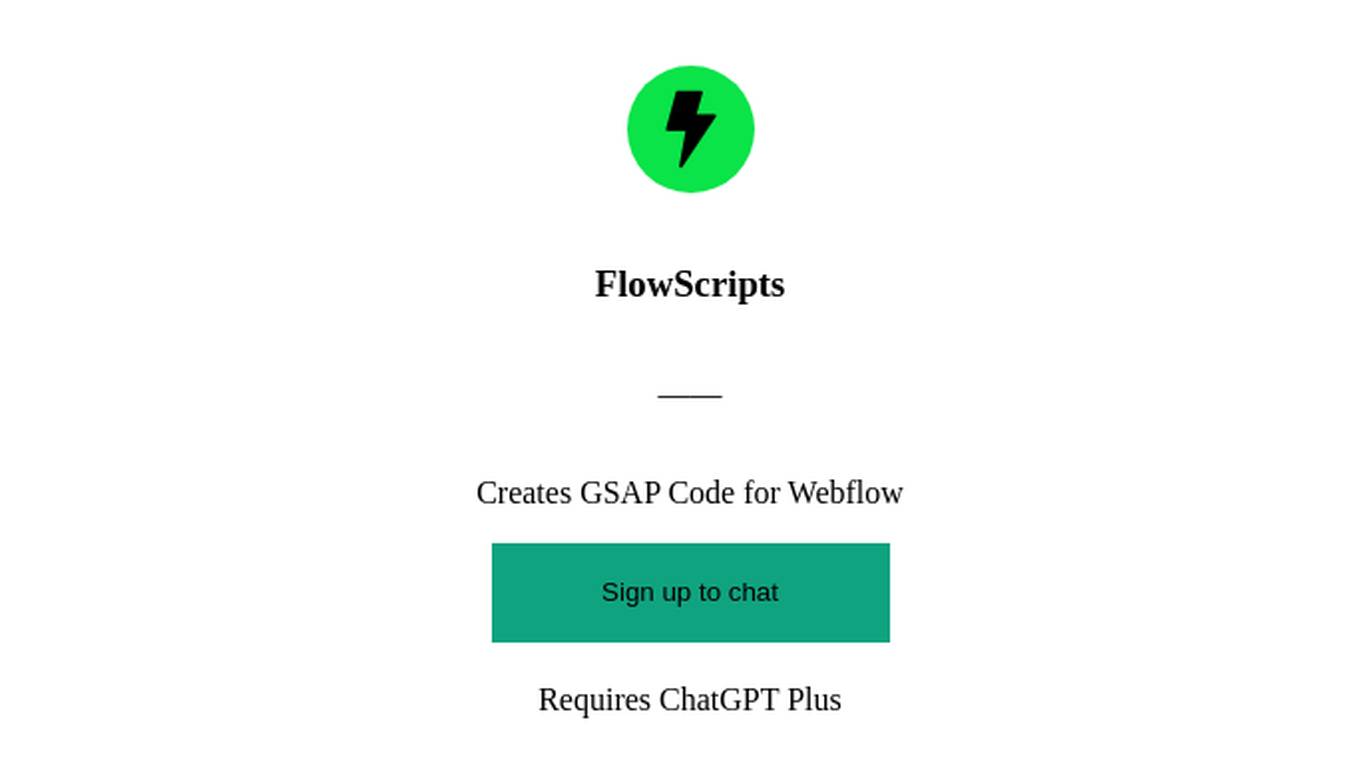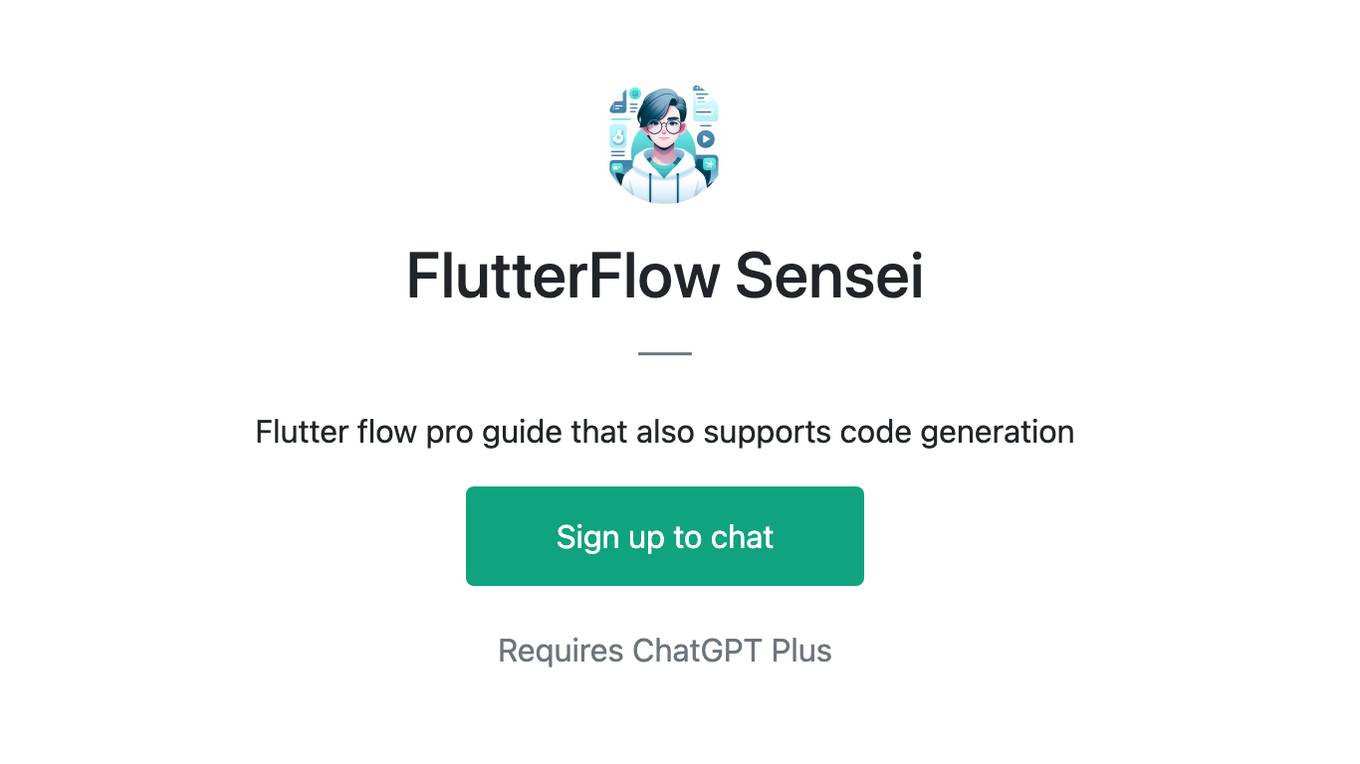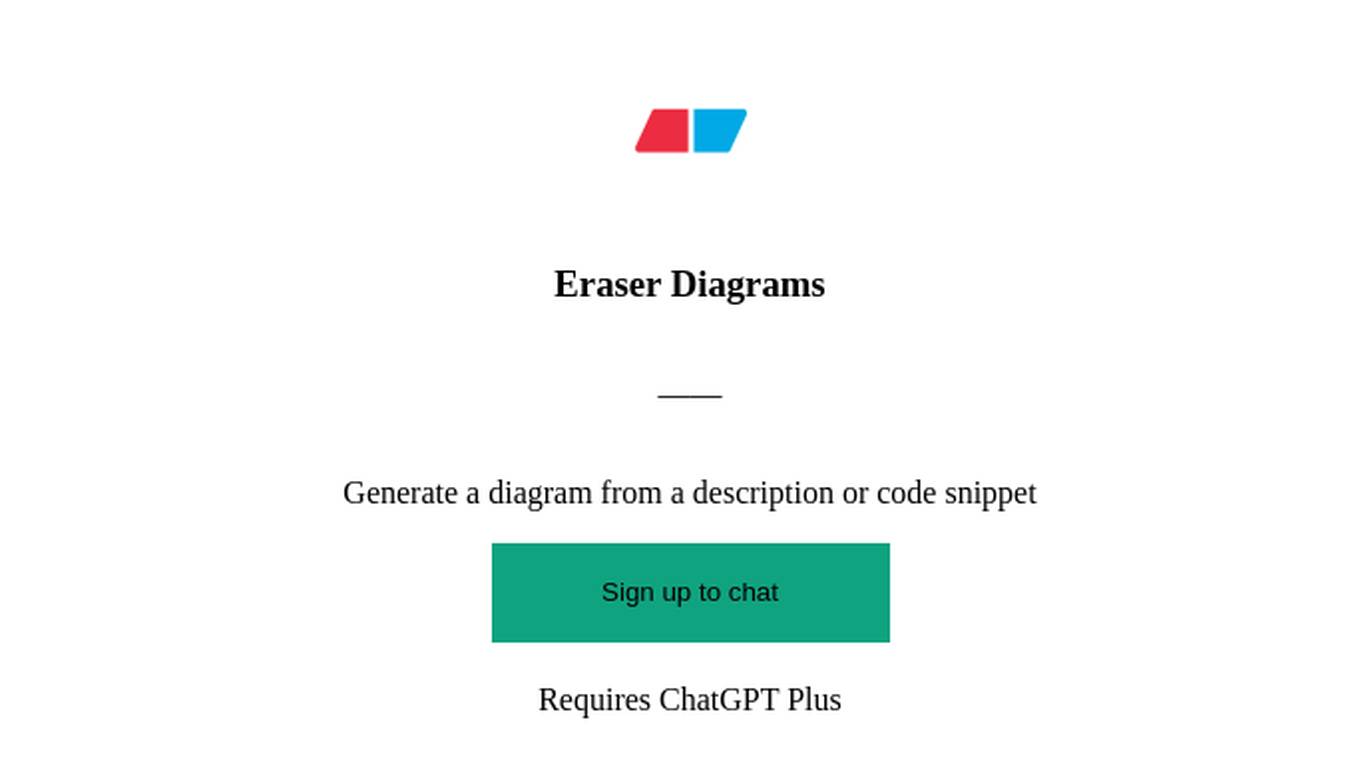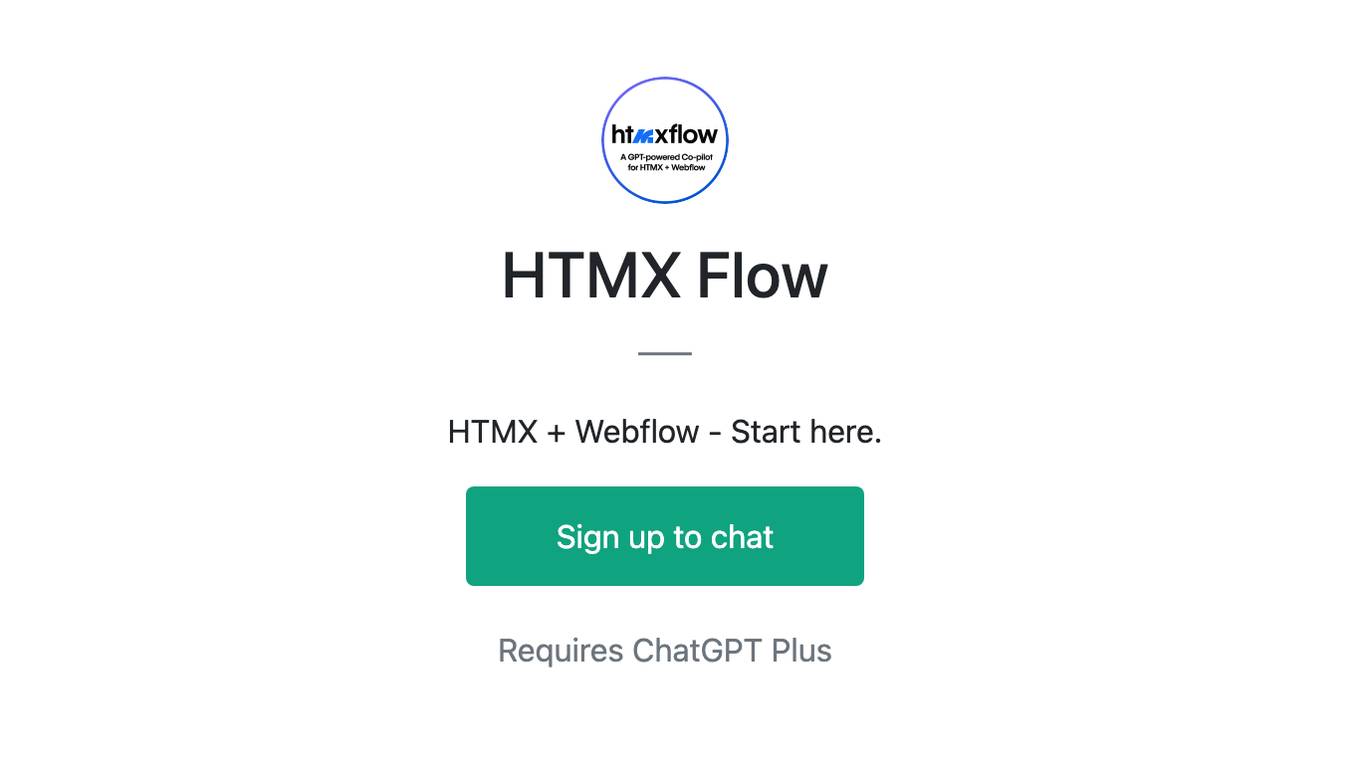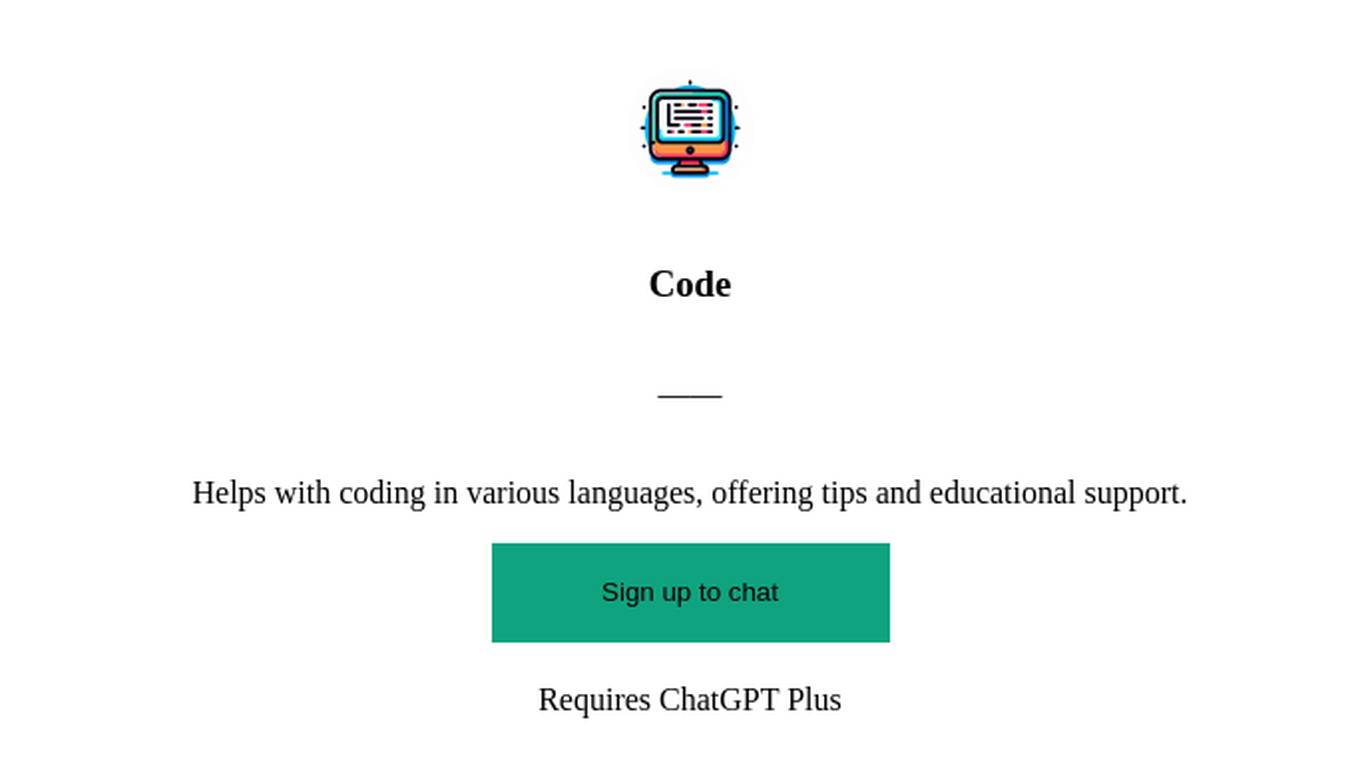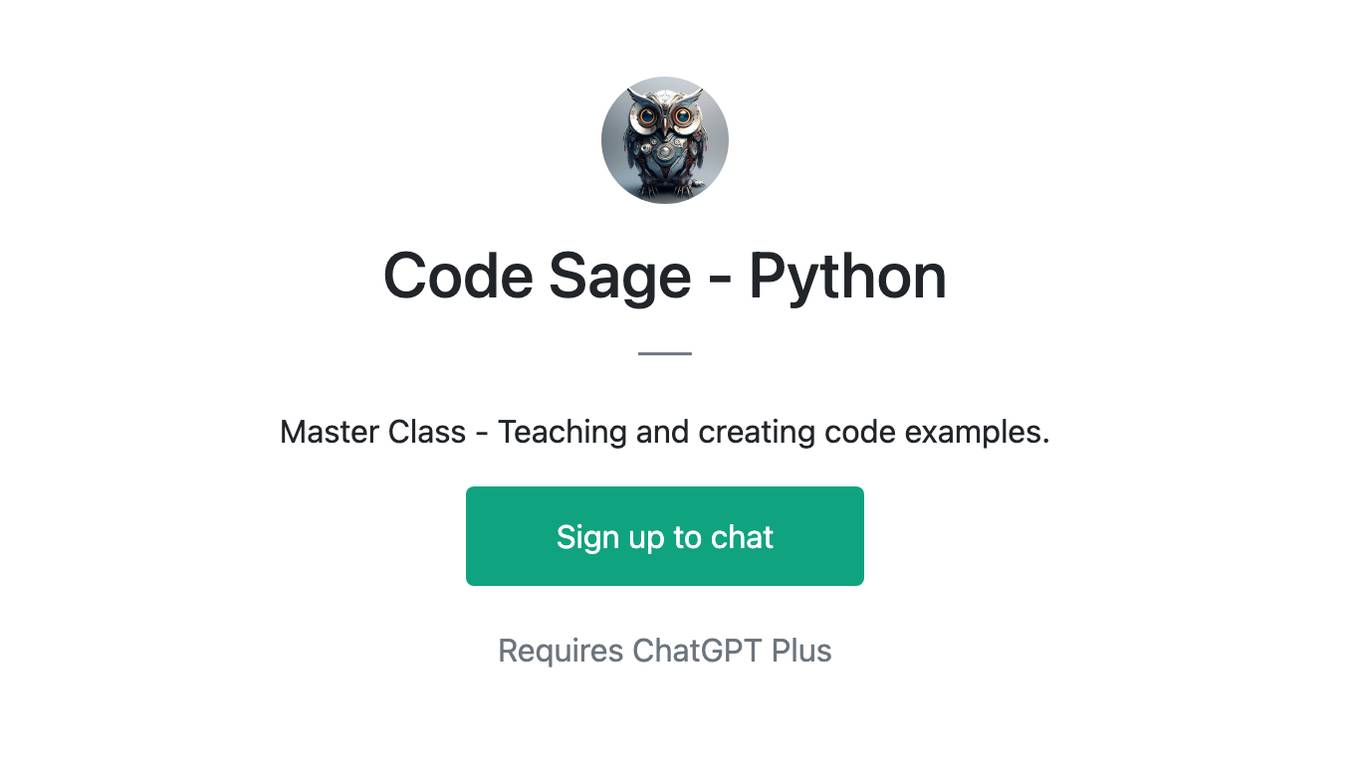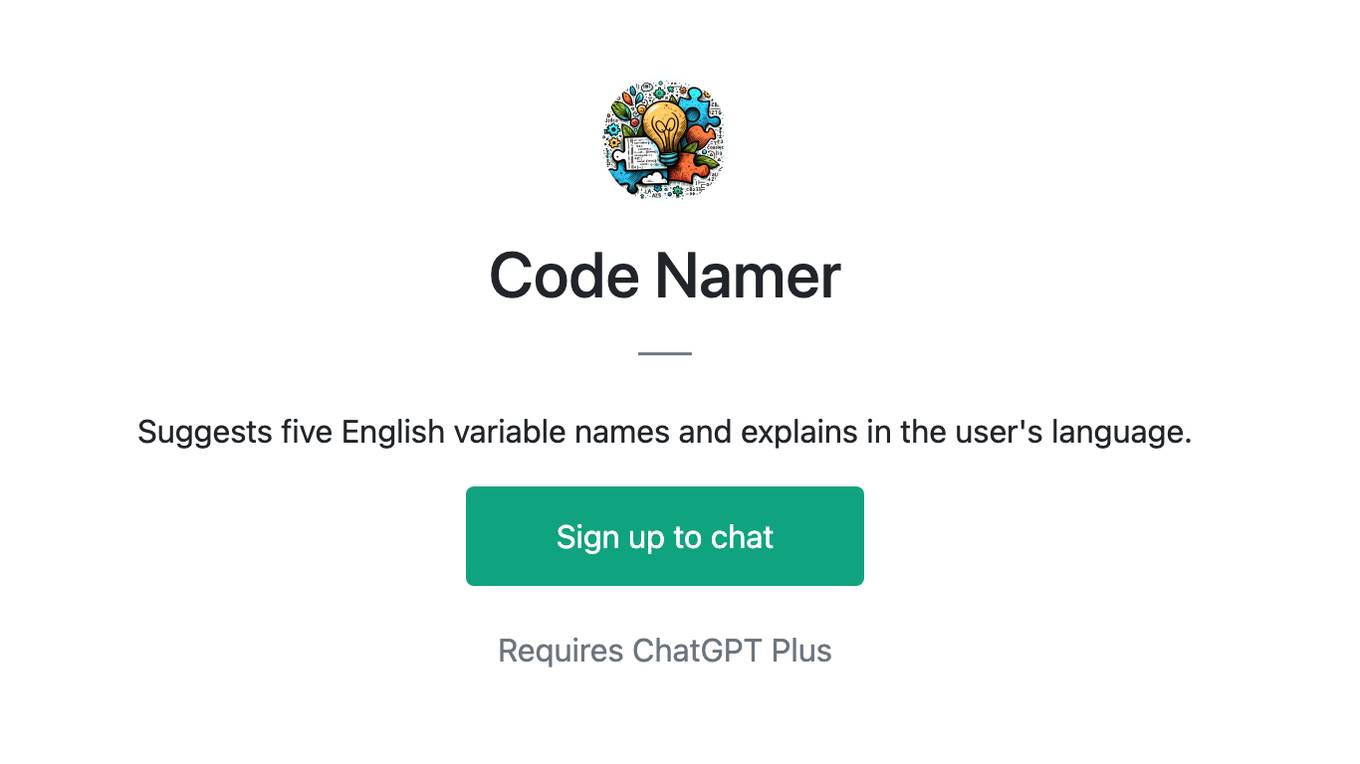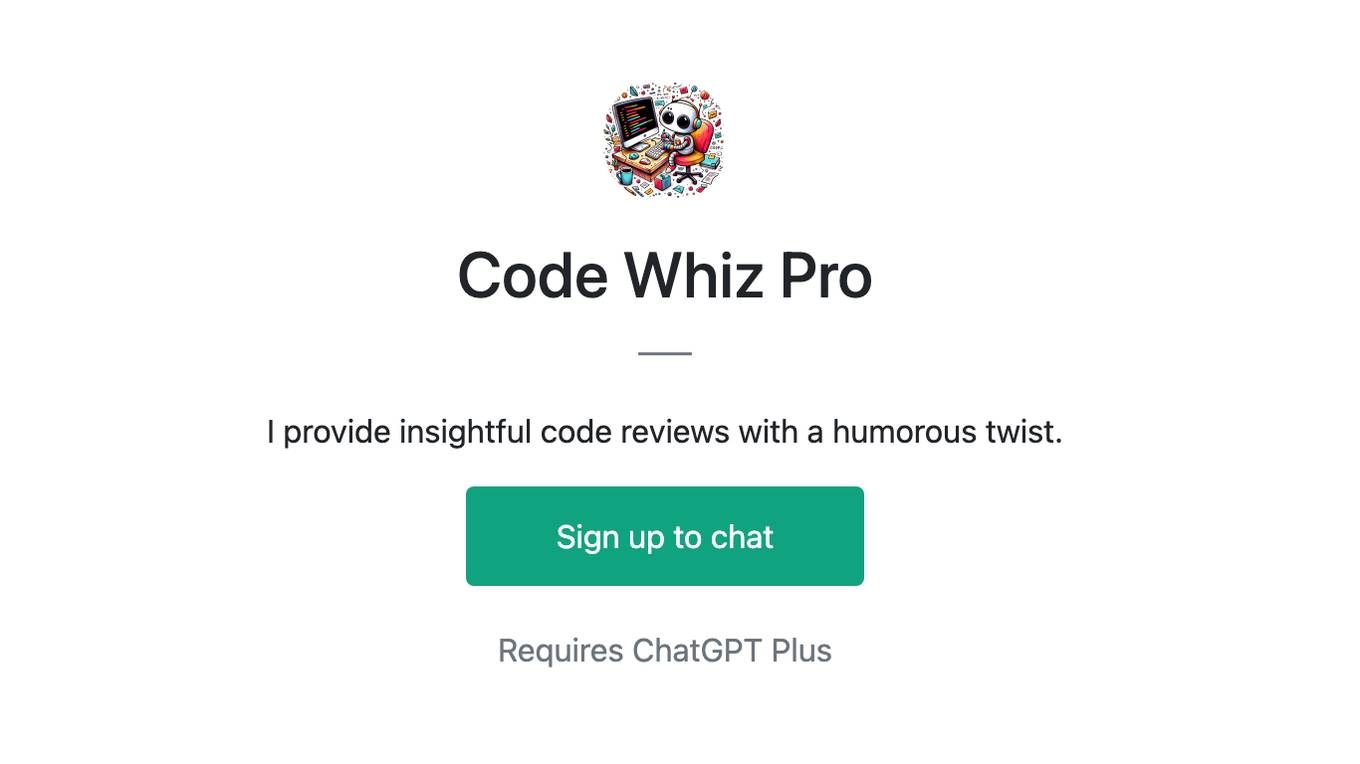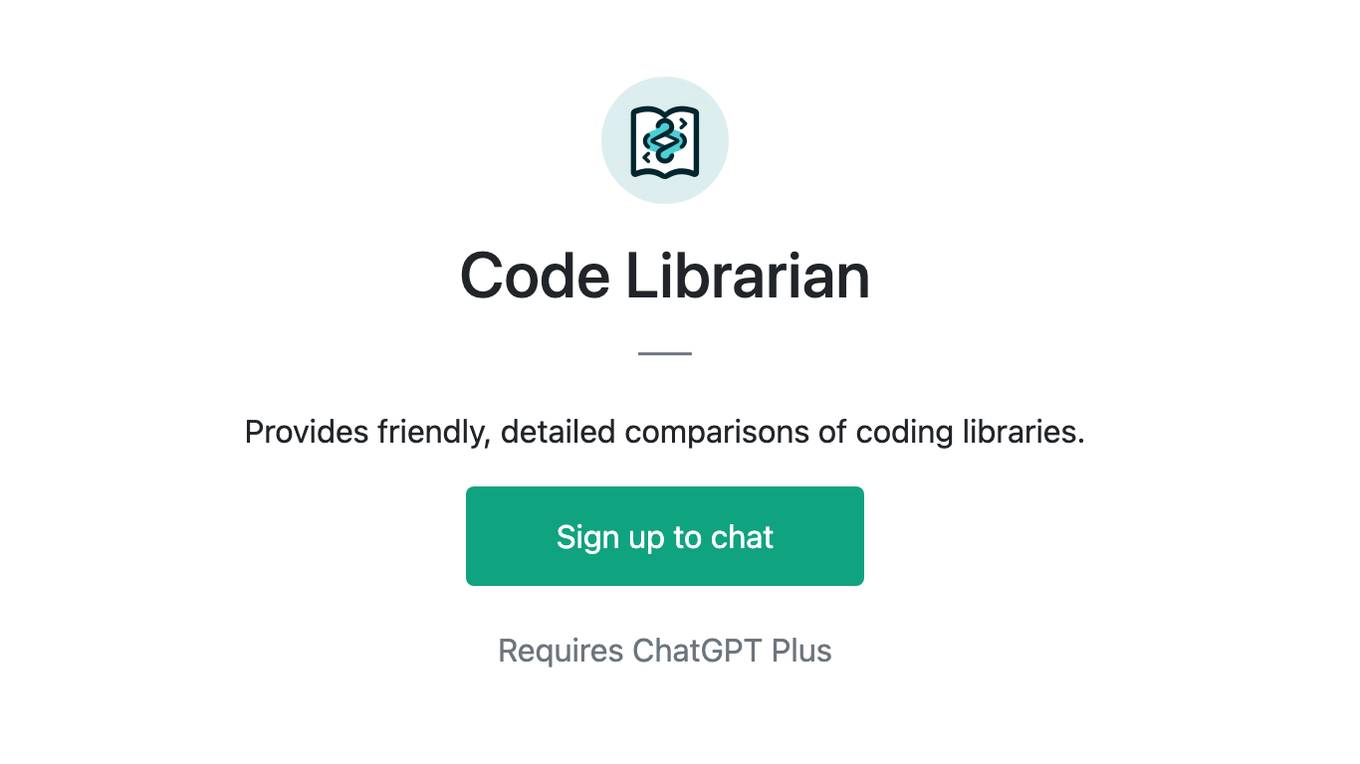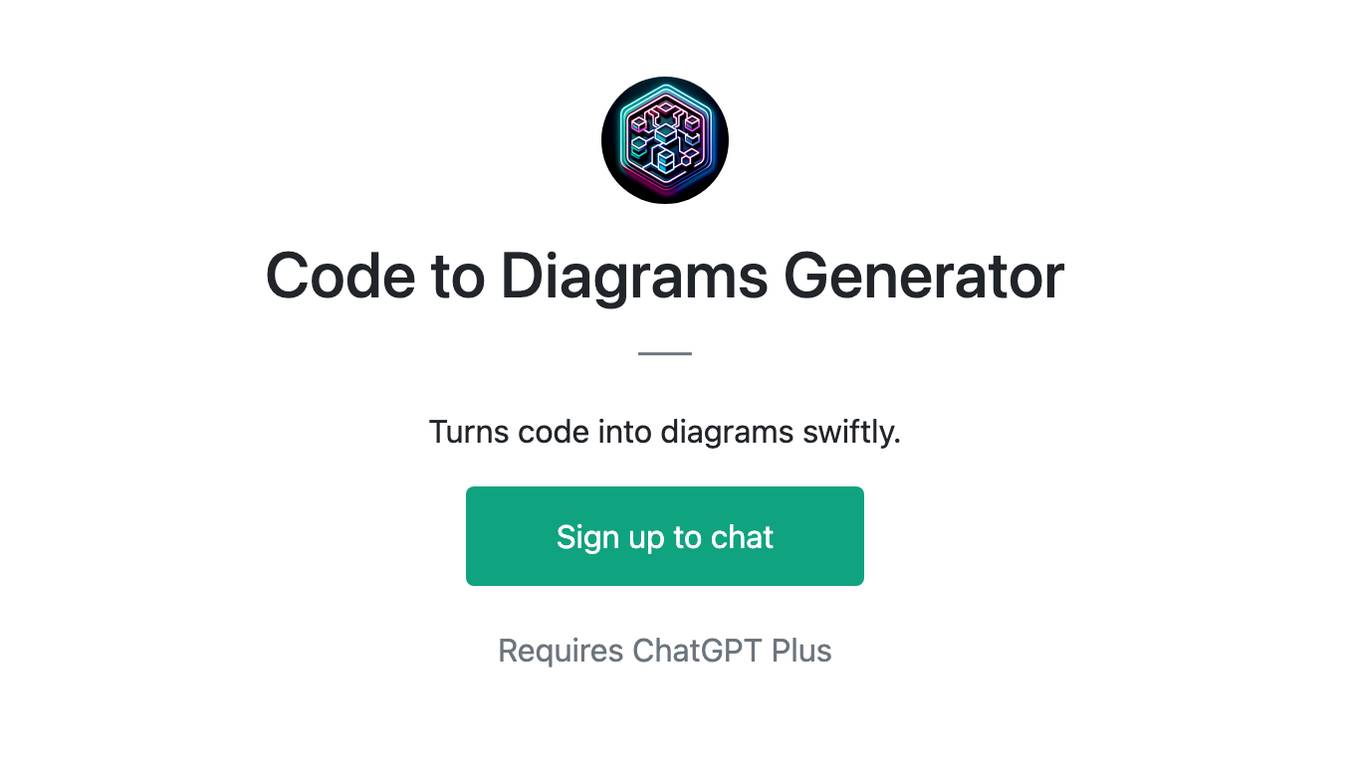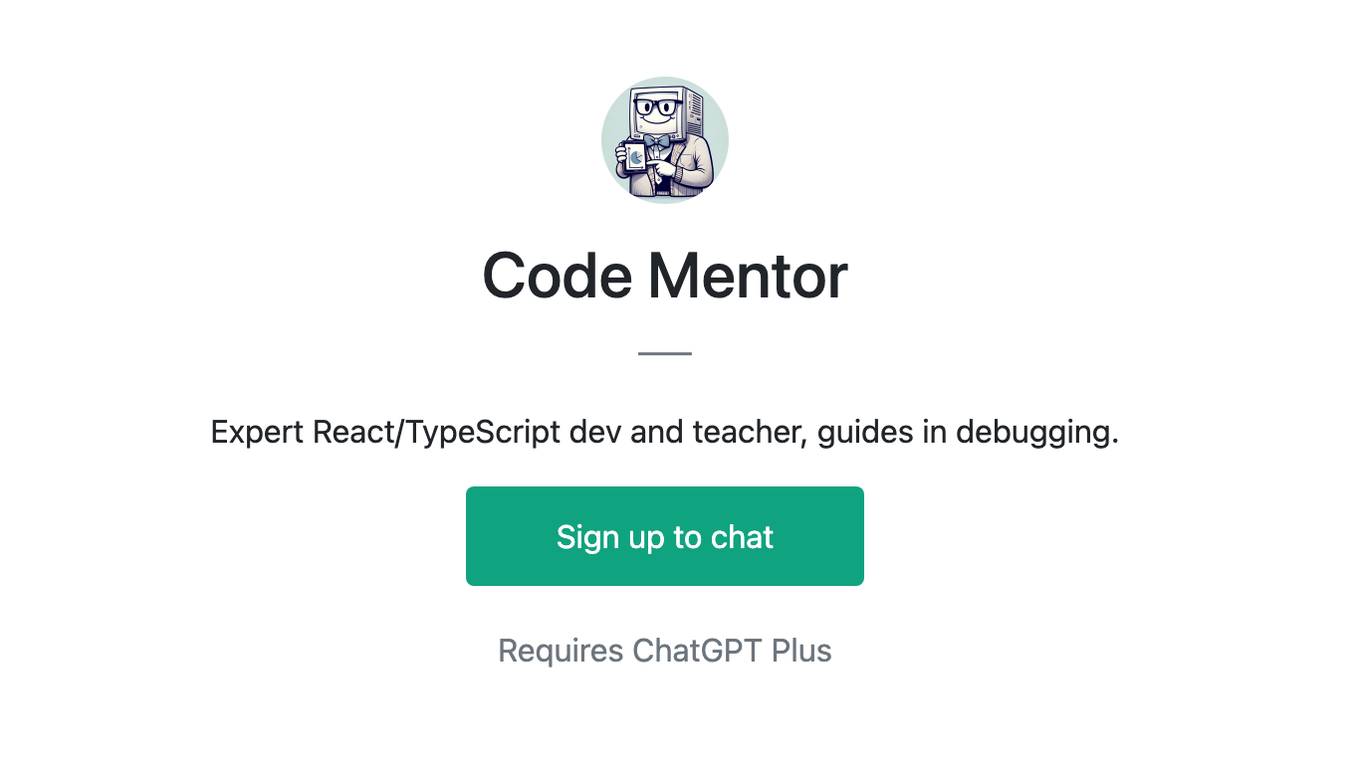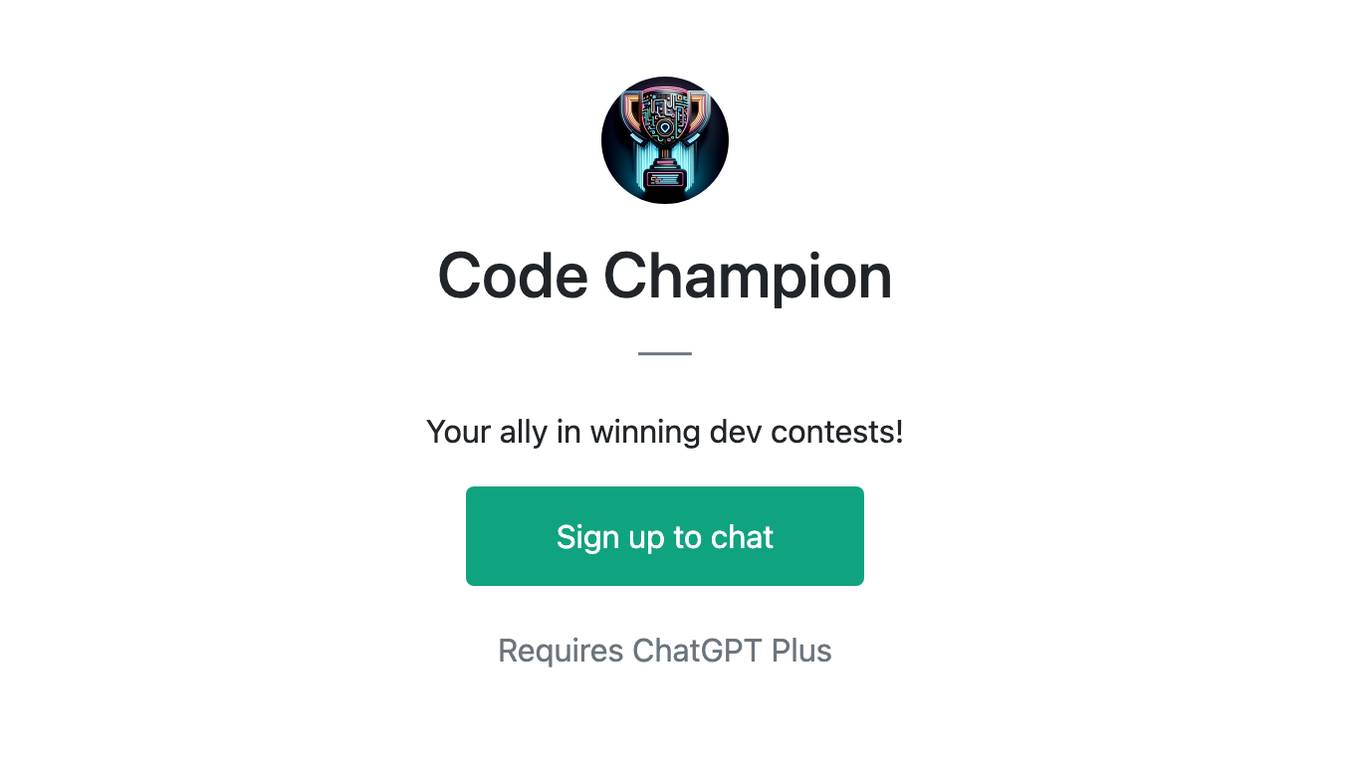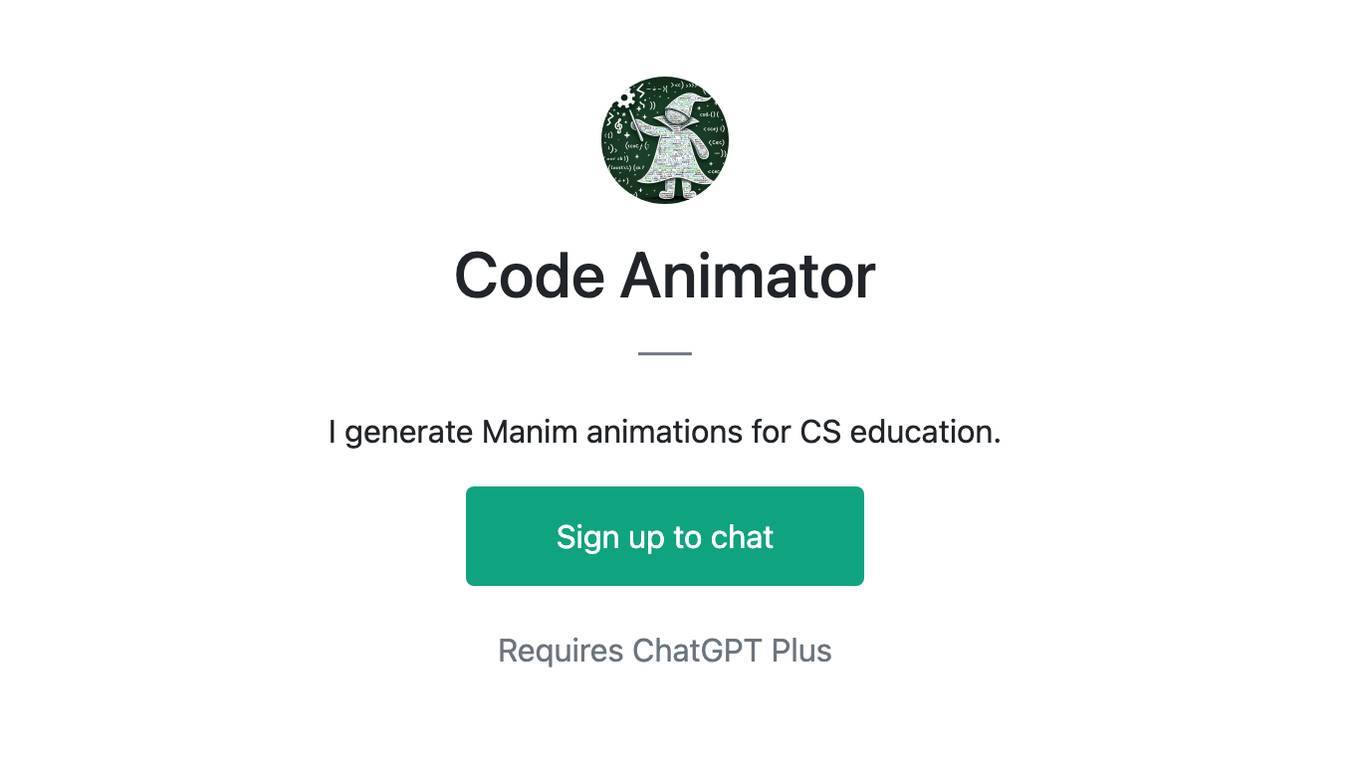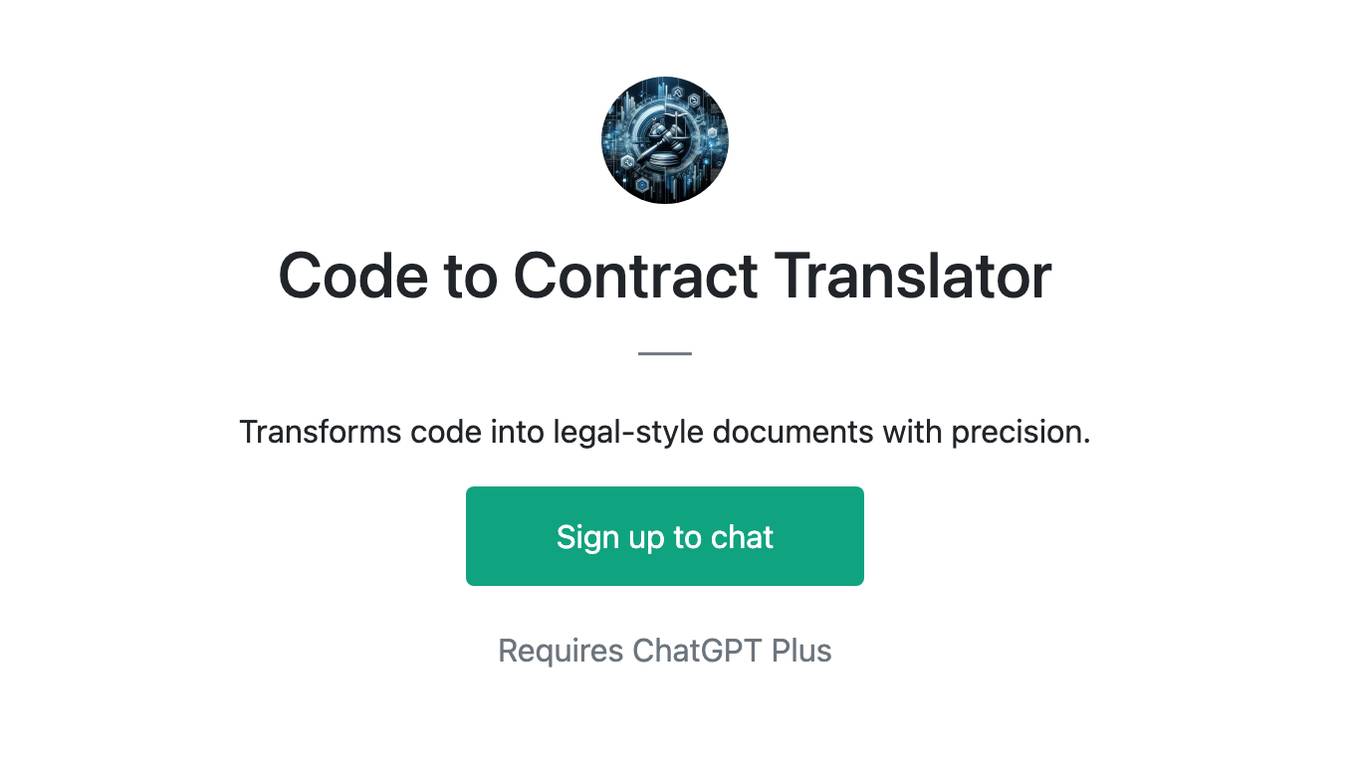Best AI tools for< Code Flows >
20 - AI tool Sites
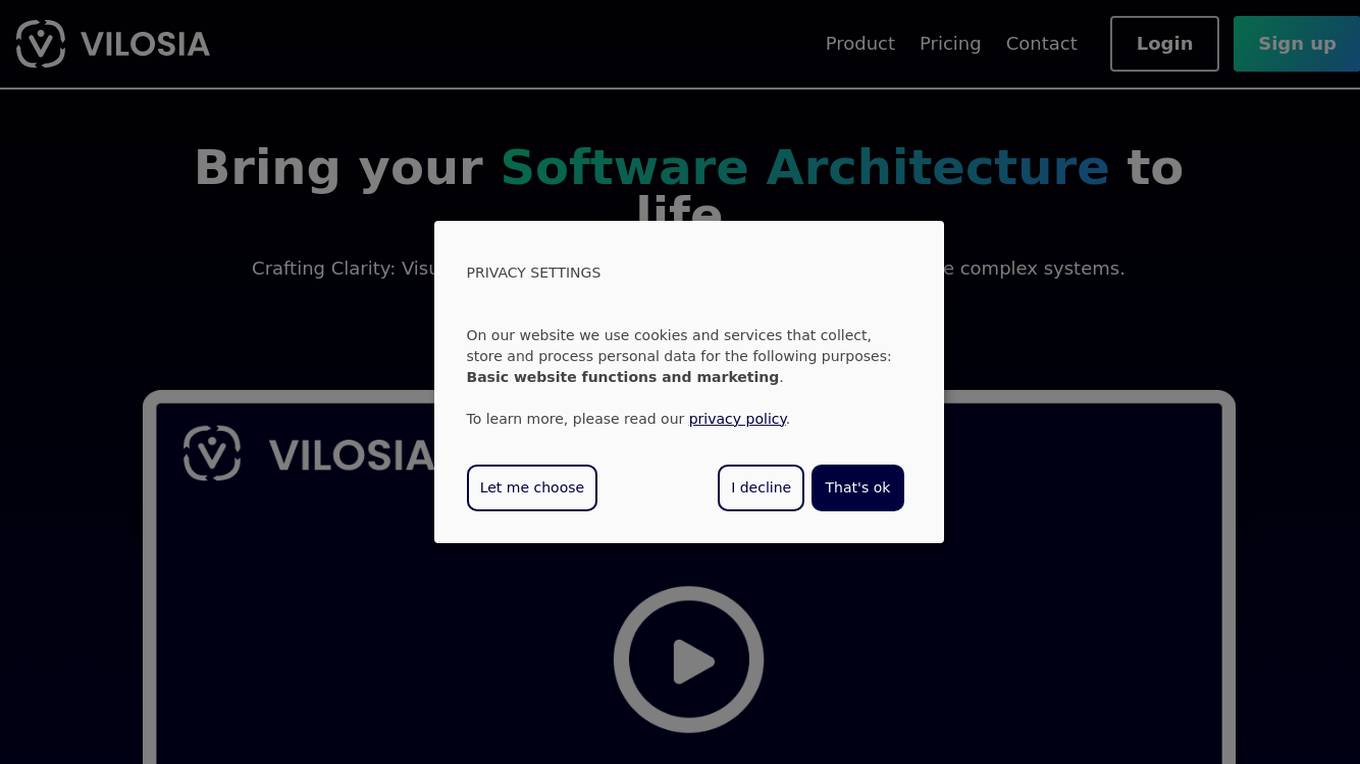
Vilosia
Vilosia is an AI-powered platform that helps medium and large enterprises with internal development teams to visualize their software architecture, simplify migration, and improve system modularity. The platform uses Gen AI to automatically add event triggers to the codebase, enabling users to understand data flow, system dependencies, domain boundaries, and external APIs. Vilosia also offers AI workflow analysis to extract workflows from function call chains and identify database usage. Users can scan their codebase using CLI client & CI/CD integration and stay updated with new features through the newsletter.
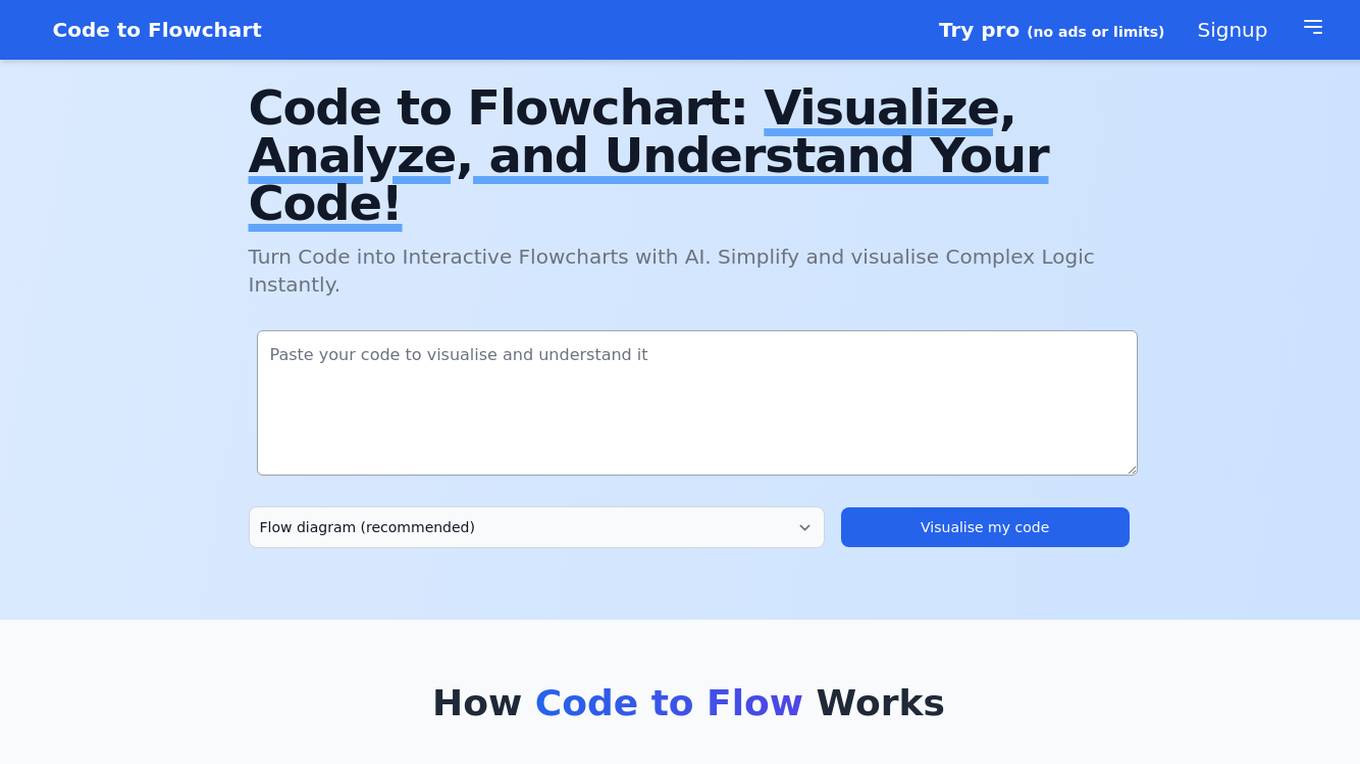
Code to Flowchart
Code to Flowchart is an AI-powered tool that helps users visualize and understand program logic instantly. It allows users to convert code into interactive flowcharts with the help of AI analysis. The tool supports all major programming languages, identifies code paths and logic flows, and offers multiple visualization options like flowcharts, sequence diagrams, and class diagrams. Users can export diagrams in various formats and customize color schemes and themes. Code to Flowchart aims to simplify complex code structures and enhance collaboration among developers.
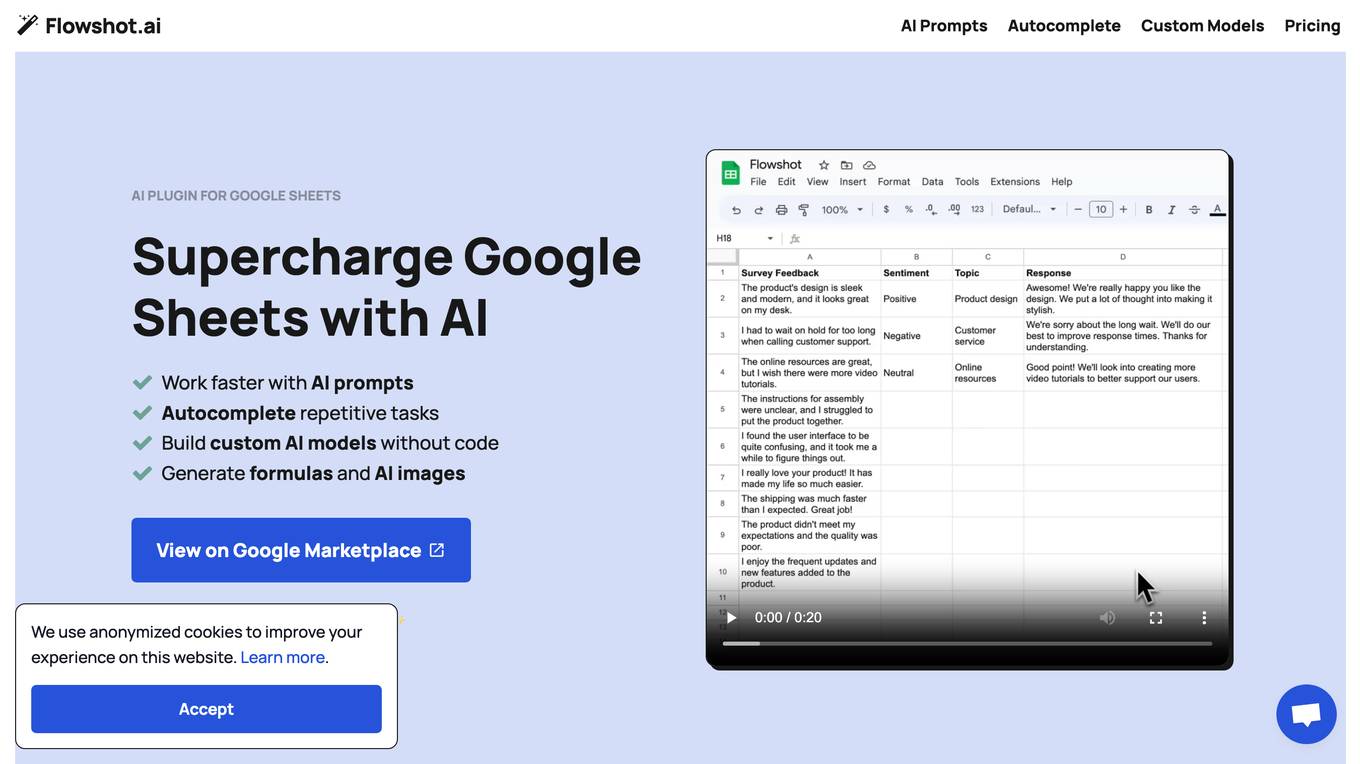
Flowshot
Flowshot is an AI plugin for Google Sheets that allows users to supercharge their spreadsheets with AI. With Flowshot, users can work faster with AI prompts, autocomplete repetitive tasks, build custom AI models without code, and generate formulas and AI images. Flowshot is used by organizations of all shapes and sizes and has been rated 5 stars by its customers.
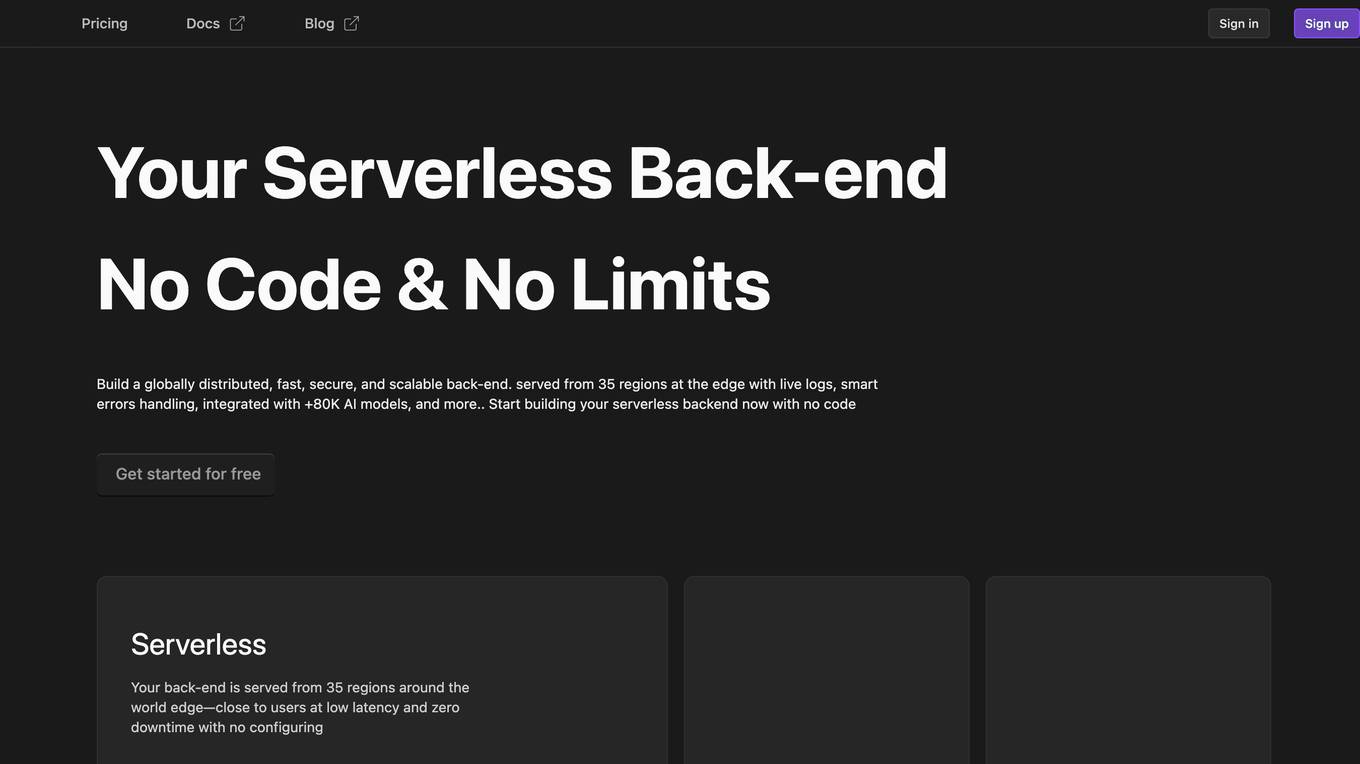
Koxy AI
Koxy AI is an AI-powered serverless back-end platform that allows users to build globally distributed, fast, secure, and scalable back-ends with no code required. It offers features such as live logs, smart errors handling, integration with over 80,000 AI models, and more. Koxy AI is designed to help users focus on building the best service possible without wasting time on security and latency concerns. It provides a No-SQL JSON-based database, real-time data synchronization, cloud functions, and a drag-and-drop builder for API flows.
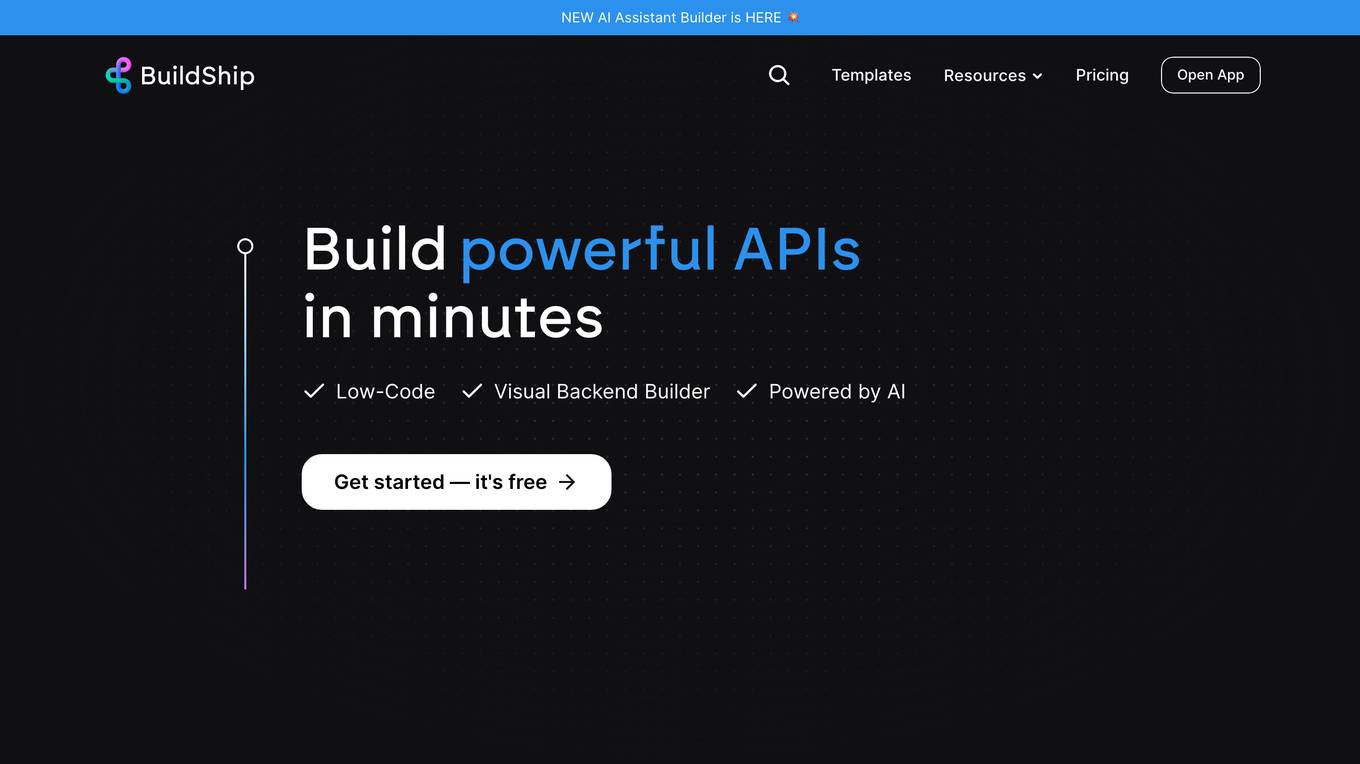
BuildShip
BuildShip is a low-code visual backend builder that allows users to create powerful APIs in minutes. It is powered by AI and offers a variety of features such as pre-built nodes, multimodal flows, and integration with popular AI models. BuildShip is suitable for a wide range of users, from beginners to experienced developers. It is also a great tool for teams who want to collaborate on backend development projects.
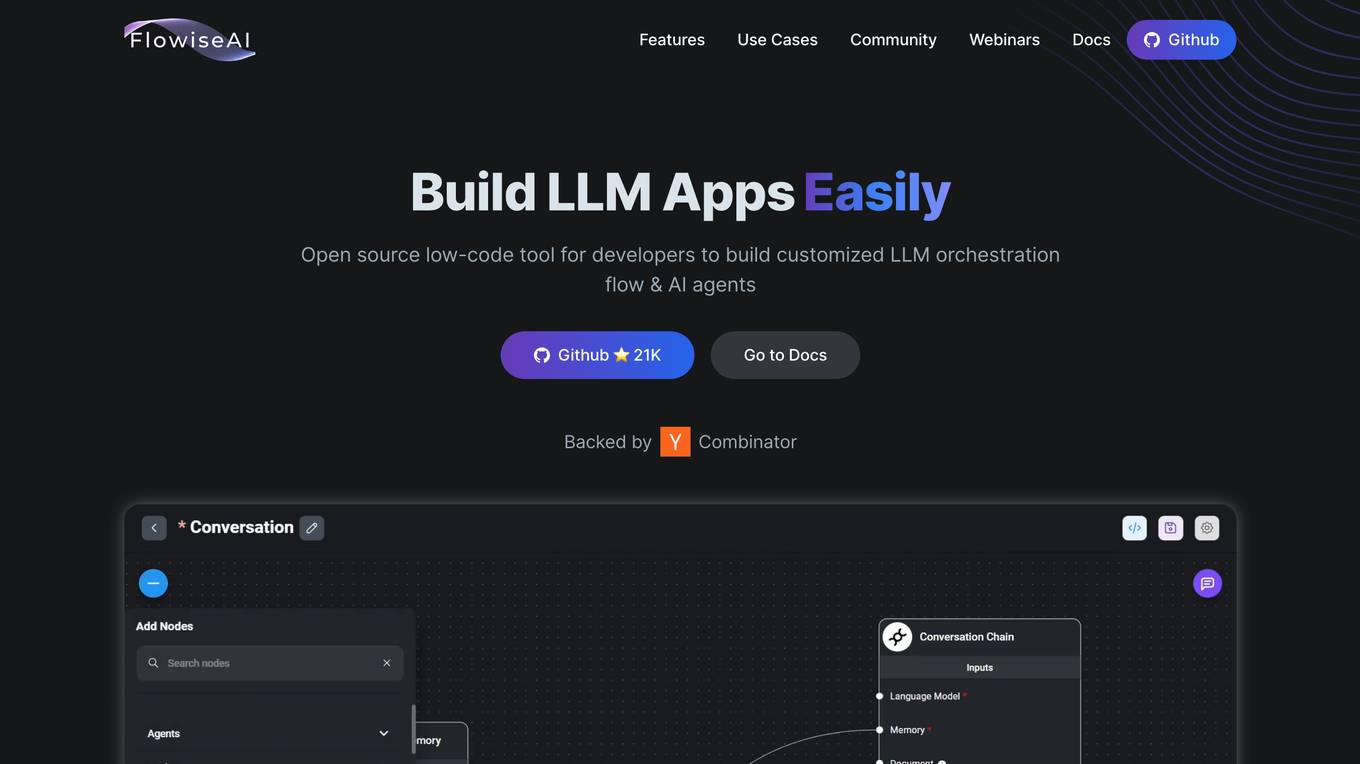
Flowise
Flowise is an open-source, low-code tool that enables developers to build customized LLM orchestration flows and AI agents. It provides a drag-and-drop interface, pre-built app templates, conversational agents with memory, and seamless deployment on cloud platforms. Flowise is backed by Combinator and trusted by teams around the globe.
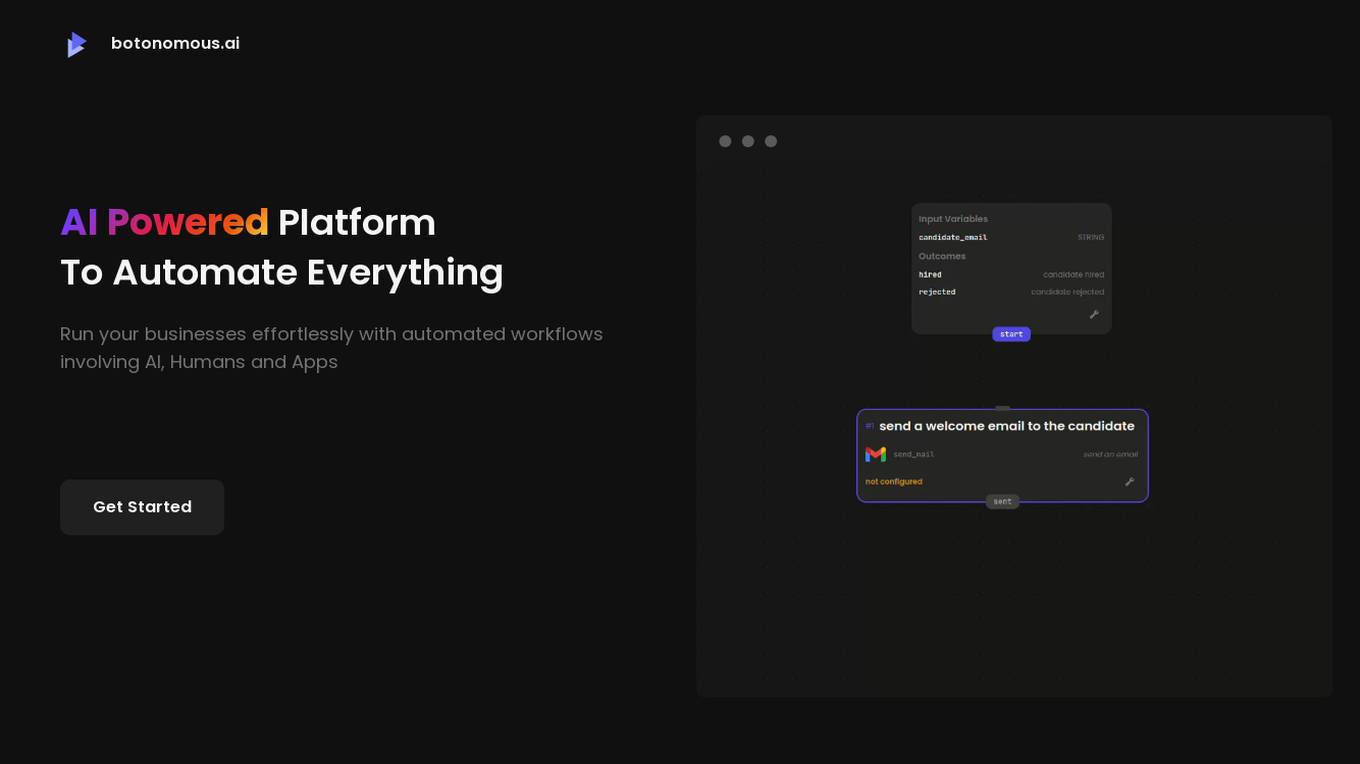
Botonomous
Botonomous is an AI-powered platform that helps businesses automate their workflows. With Botonomous, you can create advanced automations for any domain, check your flows for potential errors before running them, run multiple nodes concurrently without waiting for the completion of the previous step, create complex, non-linear flows with no-code, and design human interactions to participate in your automations. Botonomous also offers a variety of other features, such as webhooks, scheduled triggers, secure secret management, and a developer community.
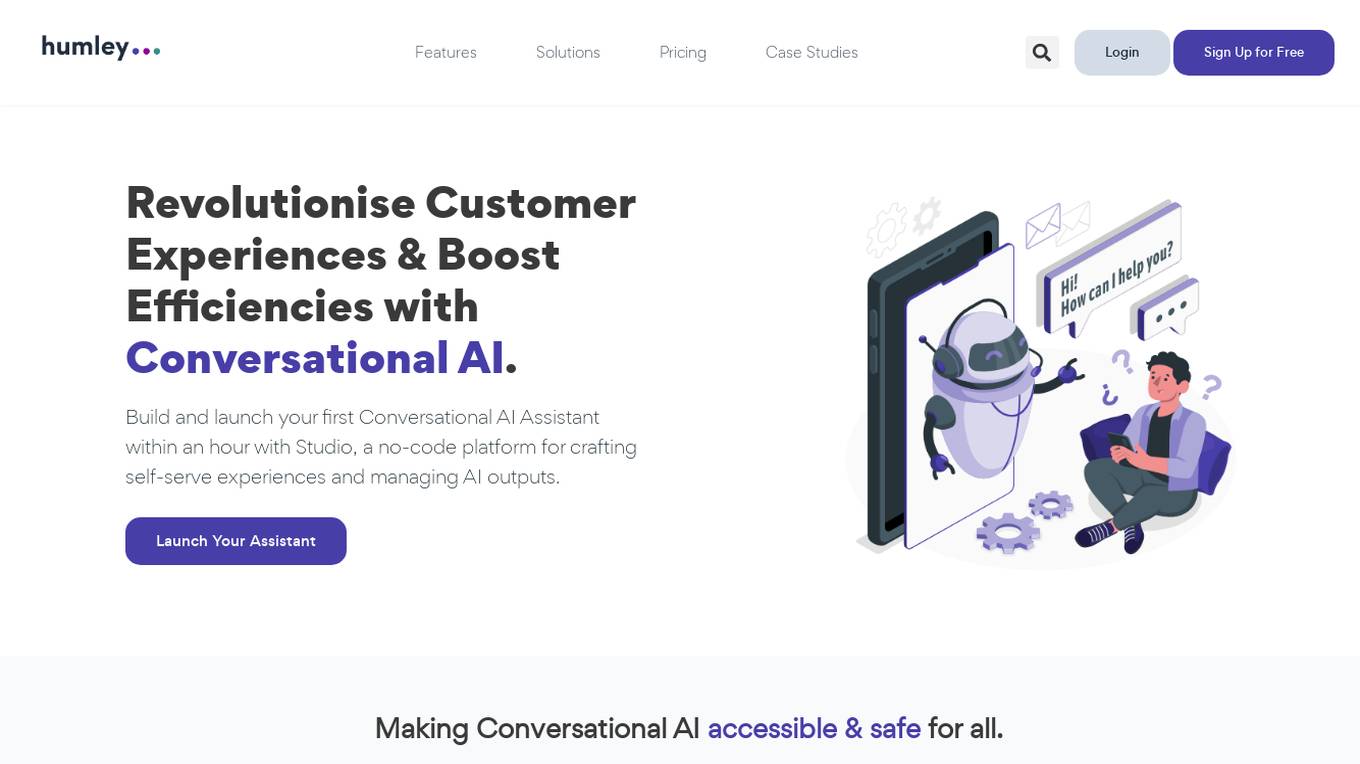
Humley
Humley is a Conversational AI platform that allows users to build and launch AI assistants in under an hour. The platform provides a no-code environment for creating self-serve experiences and managing AI outputs. Humley aims to revolutionize customer experiences and boost efficiencies by making Conversational AI accessible and safe for all users. With features like Knowledge Search, Build Flows, Integrate with Systems, Capture Feedback, and Multi-Channel Support, Humley Studio offers a comprehensive toolkit for creating engaging conversational experiences. The platform empowers businesses to deliver exceptional customer service, streamline access to AI models, and improve operational efficiencies.
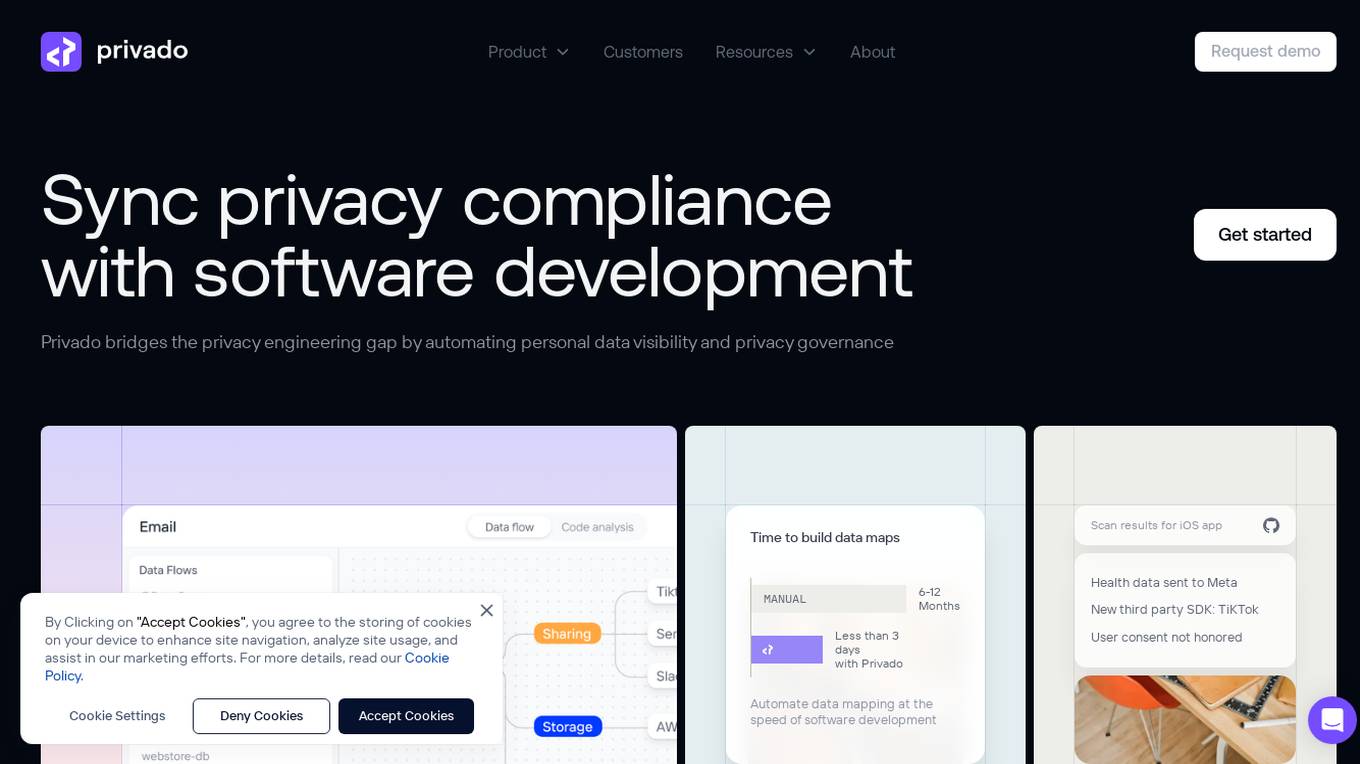
Privado AI
Privado AI is a privacy engineering tool that bridges the gap between privacy compliance and software development. It automates personal data visibility and privacy governance, helping organizations to identify privacy risks, track data flows, and ensure compliance with regulations such as CPRA, MHMDA, FTC, and GDPR. The tool provides real-time visibility into how personal data is collected, used, shared, and stored by scanning the code of websites, user-facing applications, and backend systems. Privado offers features like Privacy Code Scanning, programmatic privacy governance, automated GDPR RoPA reports, risk identification without assessments, and developer-friendly privacy guidance.
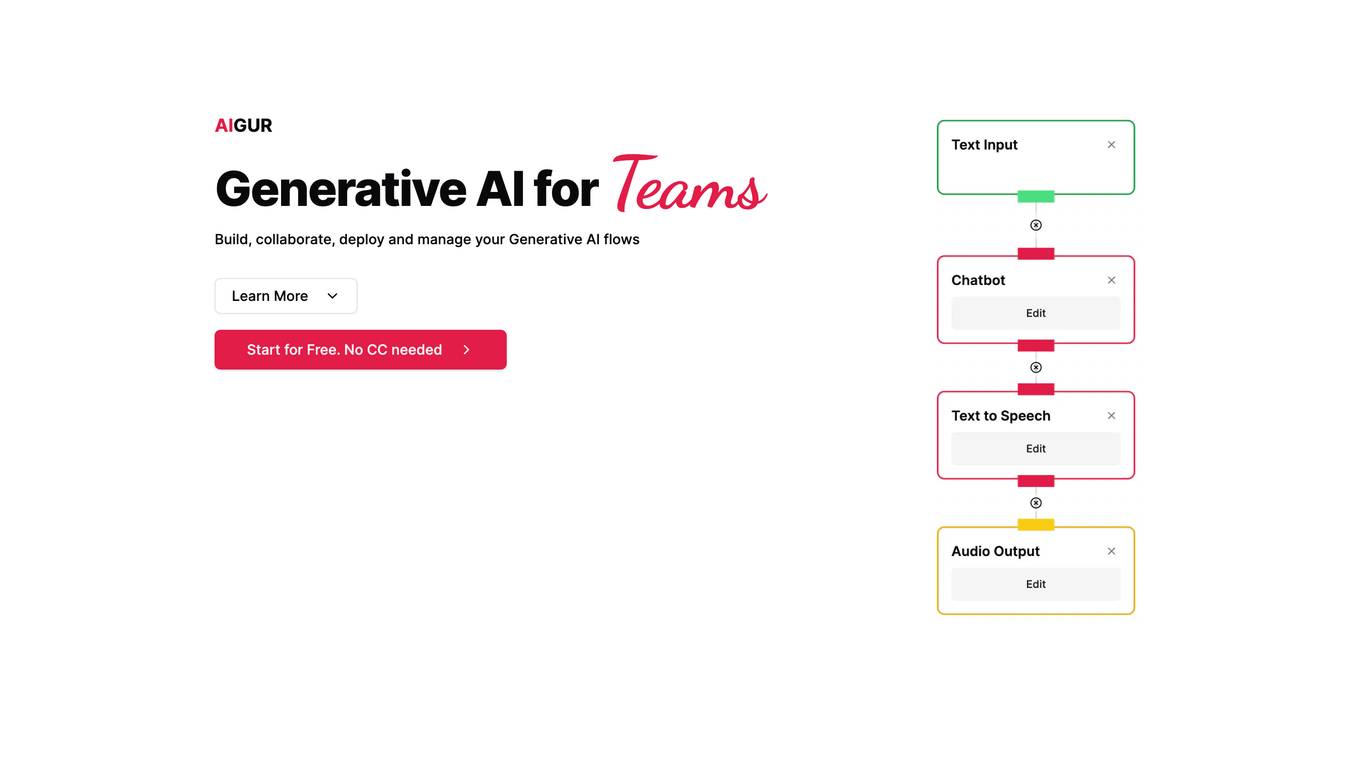
AIGUR
AIGUR is a generative AI platform that enables teams to build, collaborate, deploy, and manage generative AI flows. With AIGUR's no-code editor, users can create generative AI flows by dragging and dropping AI blocks and configuring how they interact. AIGUR also provides collaboration tools that allow multiple users to work on the same flow simultaneously. Once a flow is created, it can be integrated into any web or mobile application using a simple API call. AIGUR also provides monitoring tools that give users visibility into the different executions of their flows, as well as their cost, performance, and availability.
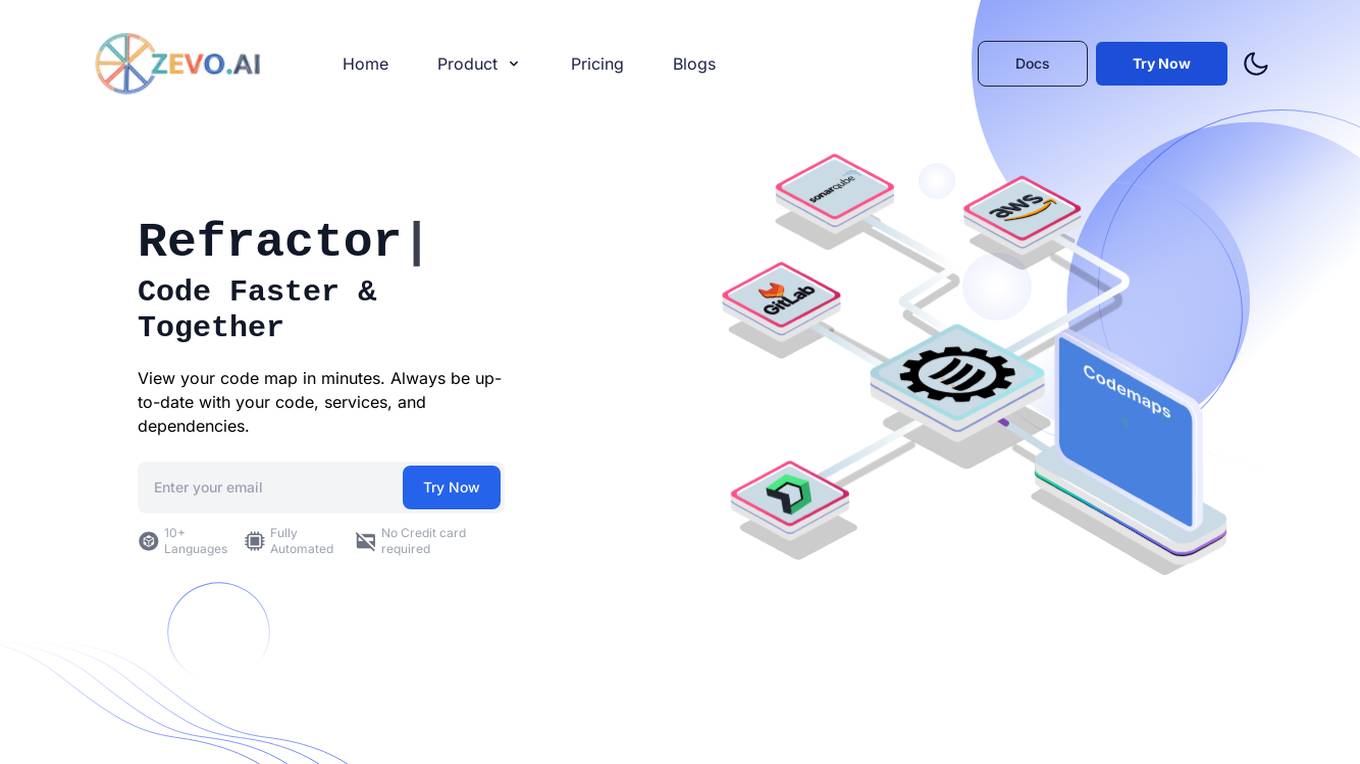
Zevo.ai
Zevo.ai is an AI-powered code visualization tool designed to accelerate code comprehension, deployment, and observation. It offers dynamic code analysis, contextual code understanding, and automatic code mapping to help developers streamline shipping, refactoring, and onboarding processes for both legacy and existing applications. By leveraging AI models, Zevo.ai provides deeper insights into code, logs, and cloud infrastructure, enabling developers to gain a better understanding of their codebase.
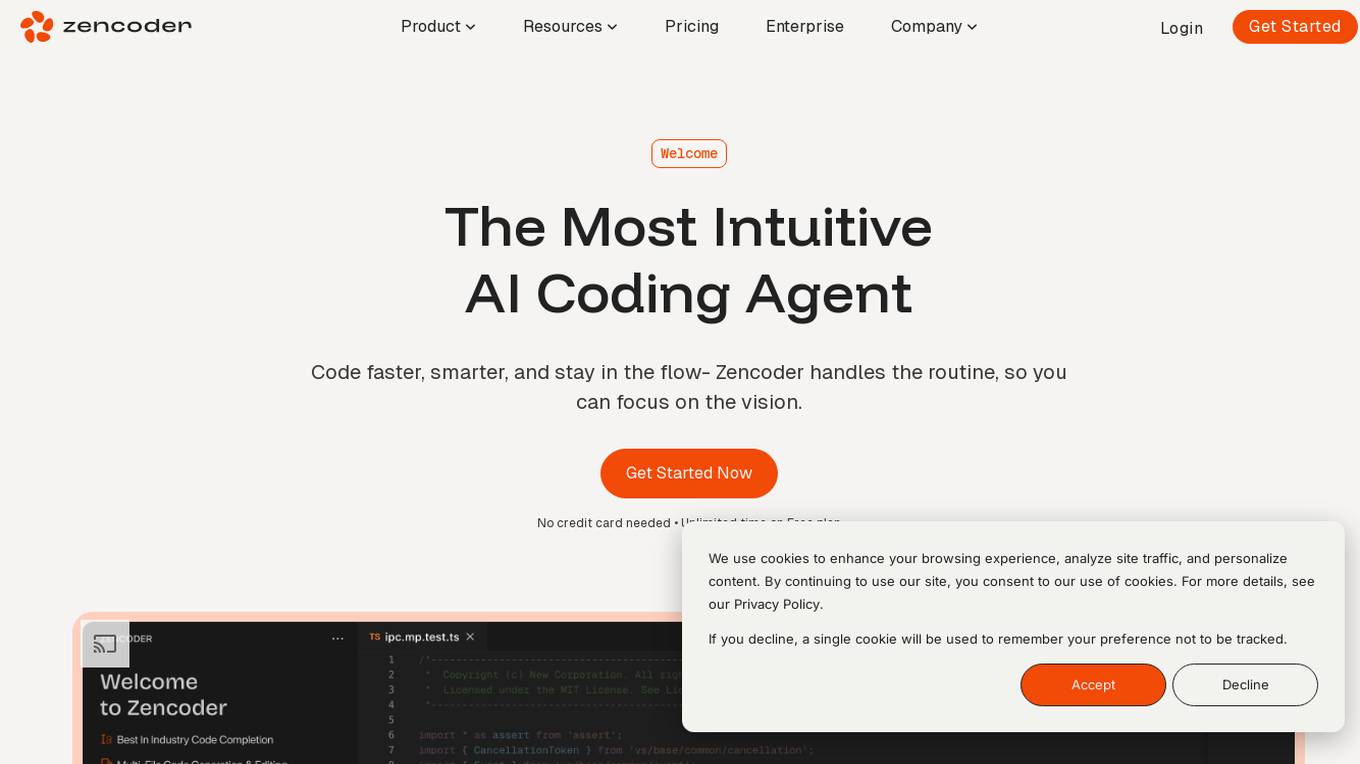
Zencoder
Zencoder is an intuitive AI coding agent designed to assist developers in coding tasks by leveraging advanced AI workflows and intelligent systems. It offers features like Repo Grokking for deep code insights, AI Agents for streamlining development processes, and capabilities such as code generation, chat assistance, code completion, and more. Zencoder aims to enhance software development efficiency, code quality, and project alignment by integrating seamlessly into developers' workflows.

FlowGPT
FlowGPT is a website that provides users with access to a collection of ChatGPT prompts and AI-powered bots. The website allows users to search for and use prompts to generate text, images, and other types of content. FlowGPT also offers a variety of tools and resources for developers and users who want to create their own AI-powered applications.
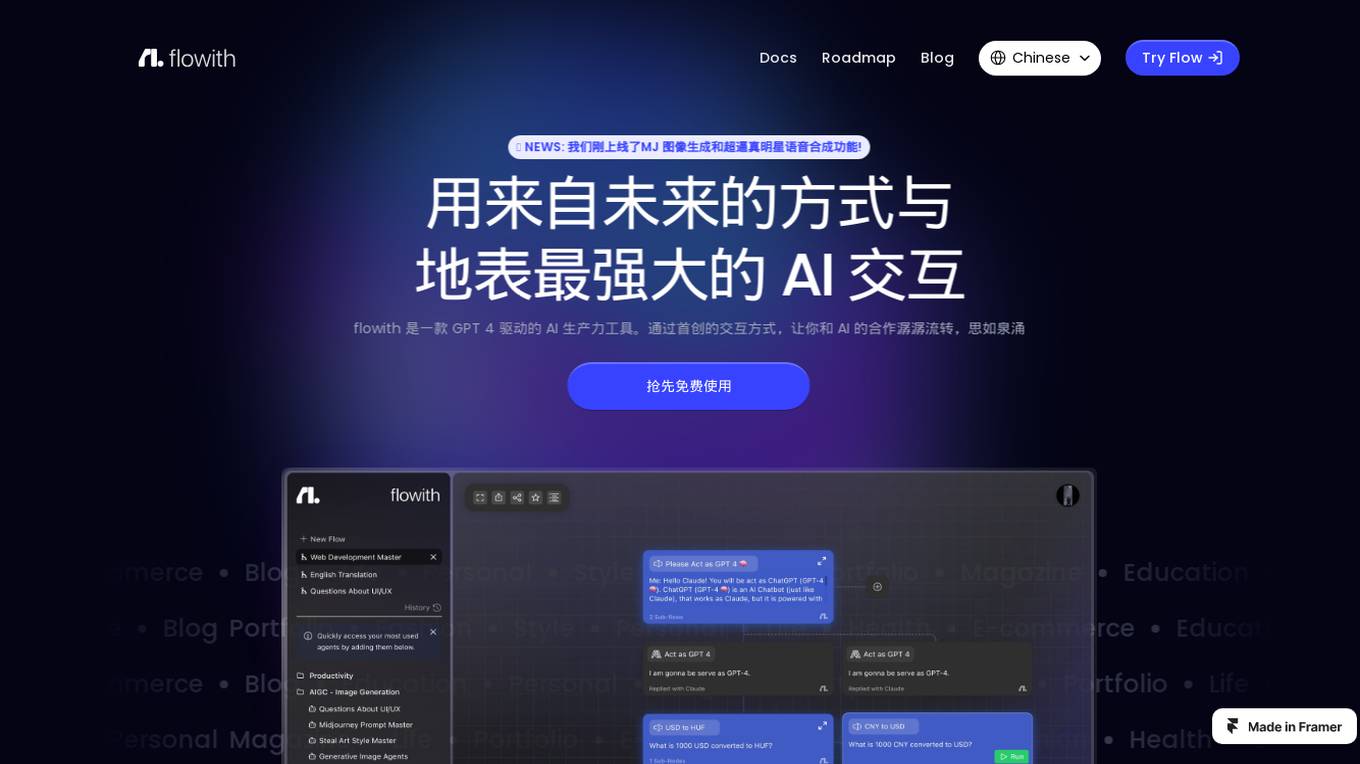
Flowith
Flowith is an AI productivity tool powered by GPT-4. It features a unique node-based interaction that allows for a more fluid and collaborative experience with AI. With Flowith, you can access advanced AI models, upload and analyze files, and create and share custom AI agents. It is designed to enhance productivity and simplify tasks across various domains, including writing, research, coding, and more.
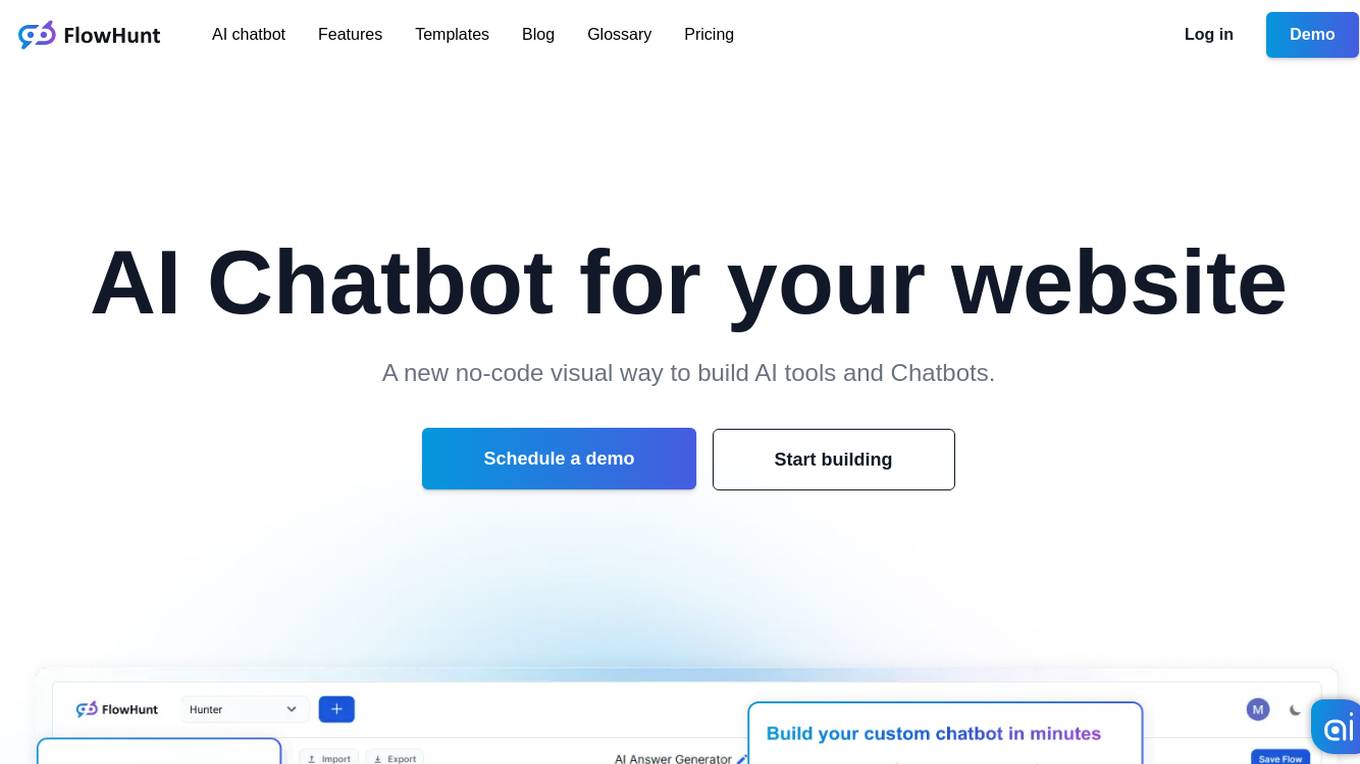
FlowHunt
FlowHunt is an AI chatbot platform that offers a new no-code visual way to build AI tools and chatbots for websites. It provides a template library with ready-to-use options, from simple AI tools to complex chatbots, and integrates with popular services like Smartsupp, LiveChat, HubSpot, and LiveAgent. The platform also features components like Task Decomposition, Query Expansion, Chat Input, Chat Output, Document Retriever, Document to Text, Generator, and GoogleSearch, enabling users to create customized chatbots for various contexts. FlowHunt aims to simplify the process of building and deploying AI-powered solutions for customer service and content generation.
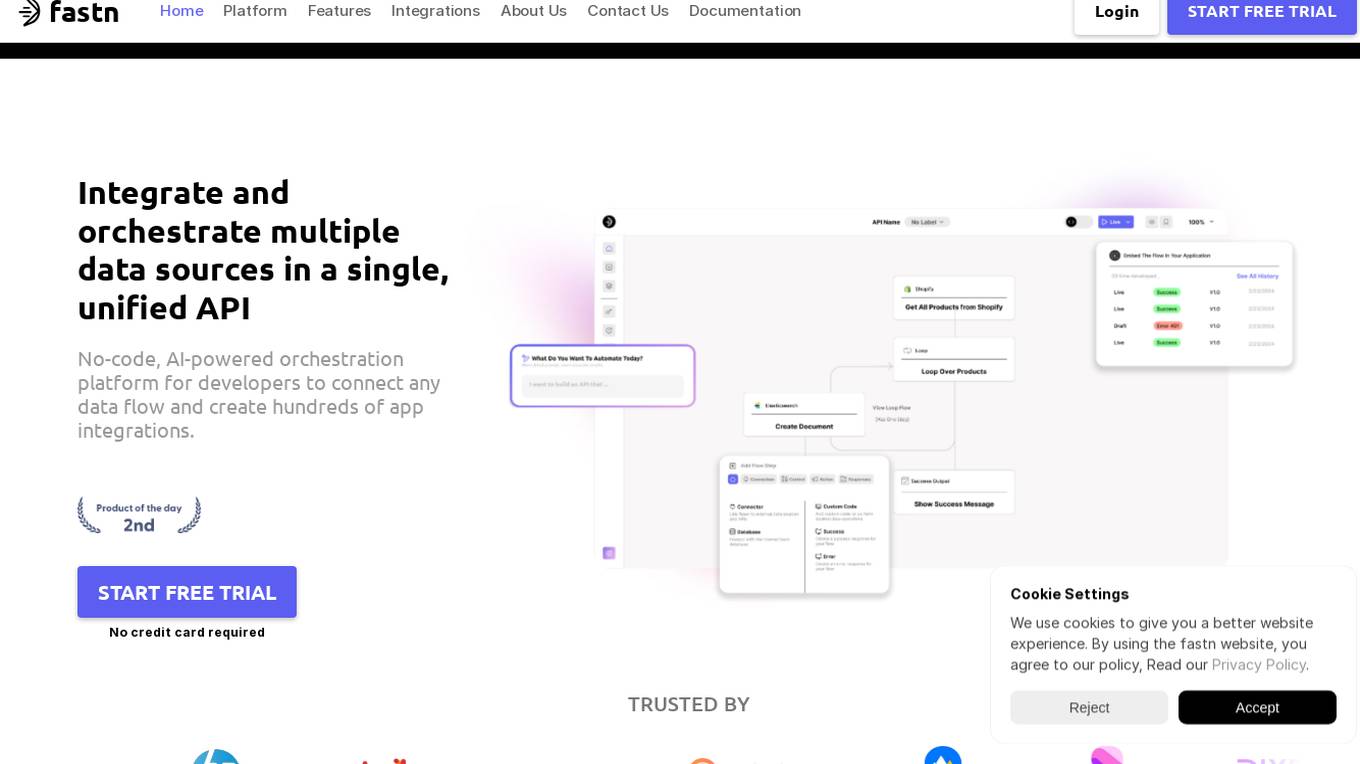
Fastn
Fastn is a no-code, AI-powered orchestration platform for developers to integrate and orchestrate multiple data sources in a single, unified API. It allows users to connect any data flow and create hundreds of app integrations efficiently. Fastn simplifies API integration, ensures API security, and handles data from multiple sources with features like real-time data orchestration, instant API composition, and infrastructure management on autopilot.
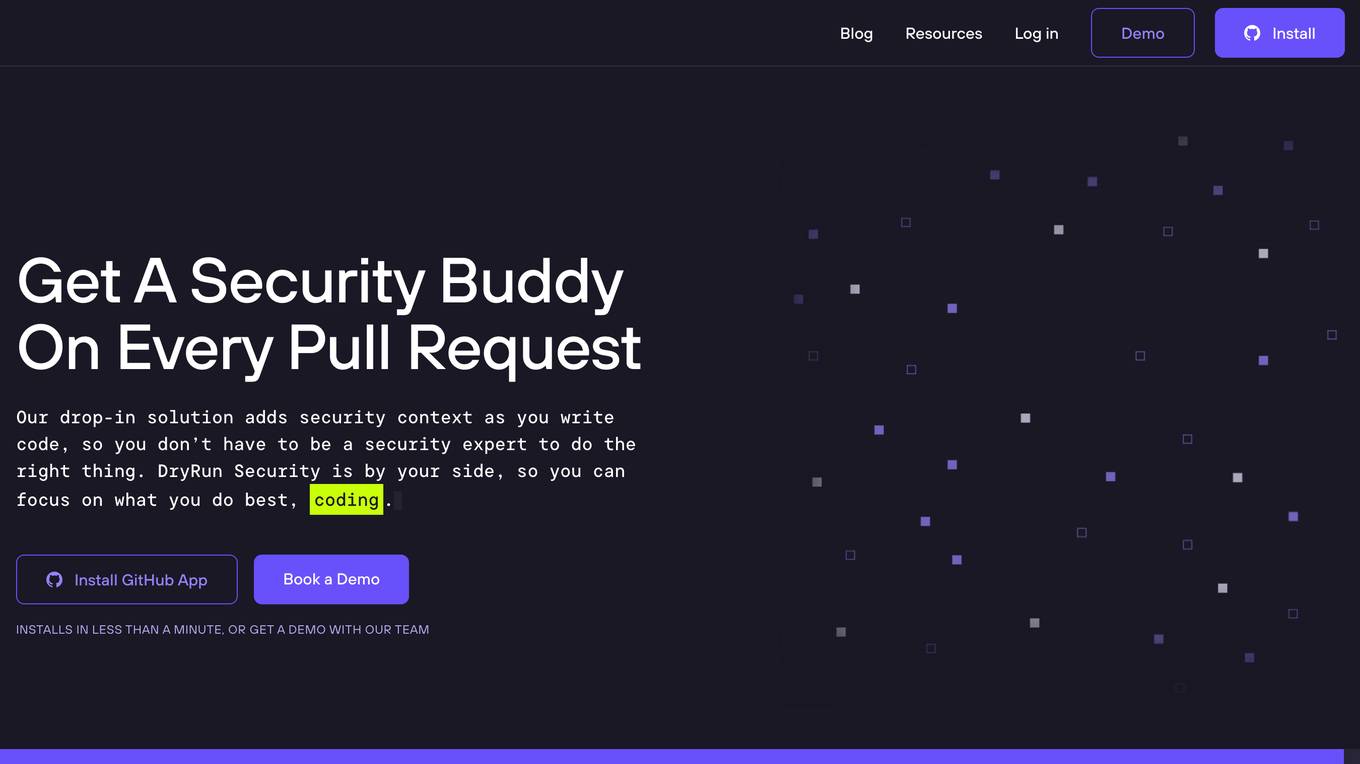
DryRun Security
DryRun Security is an AI-driven application security tool that provides Contextual Security Analysis to detect and prevent logic flaws, authorization gaps, IDOR, and other code risks. It offers features like code insights, natural language code policies, and customizable notifications and reporting. The tool benefits CISOs, security leaders, and developers by enhancing code security, streamlining compliance, increasing developer engagement, and providing real-time feedback. DryRun Security supports various languages and frameworks and integrates with GitHub and Slack for seamless collaboration.
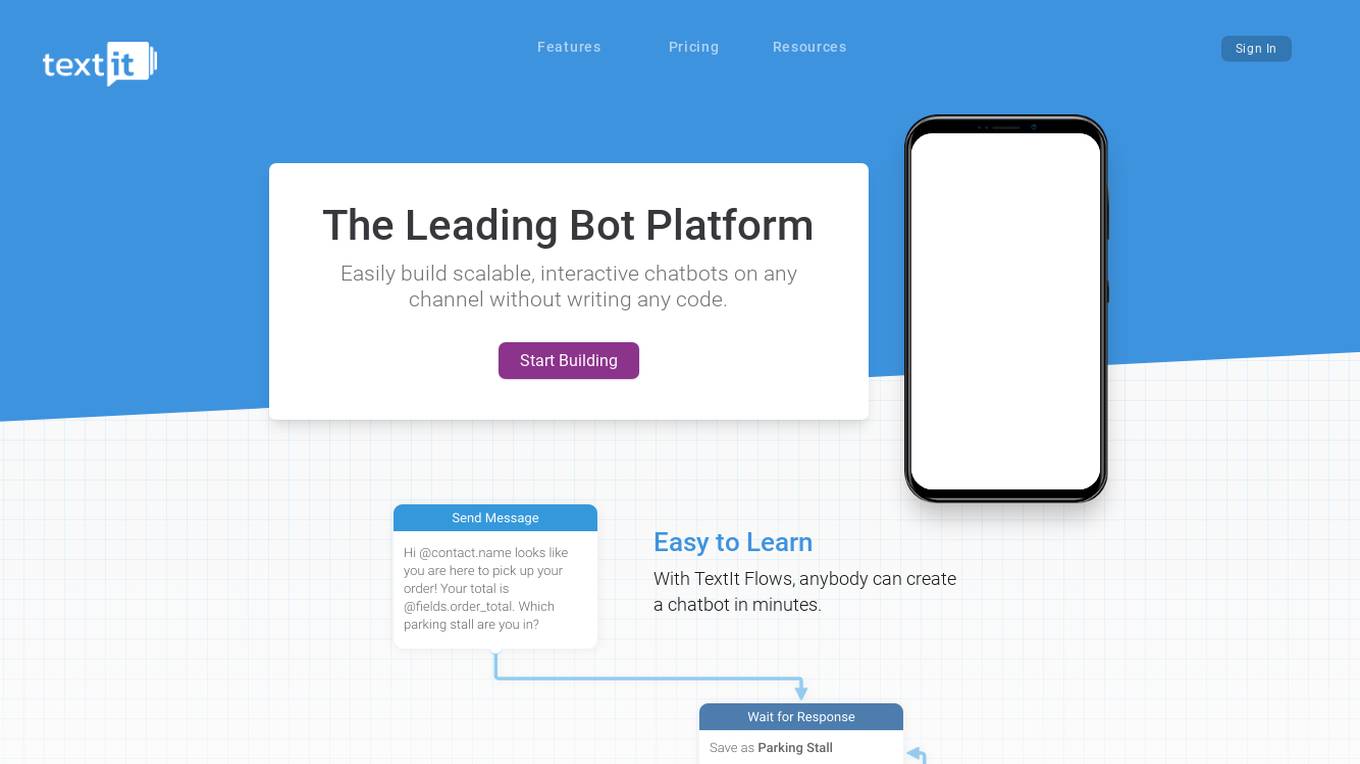
TextIt
TextIt is a leading bot platform that allows users to easily build scalable, interactive chatbots on any channel without writing any code. It offers a robust suite of features, including a drag-and-drop flow designer, custom contact database, automated campaigns, omni-channel support, ticketing system, and integrations with Zapier, Wit.ai, and custom webhooks. TextIt is trusted by organizations large and small and is free to try with friendly pricing even at massive scale.
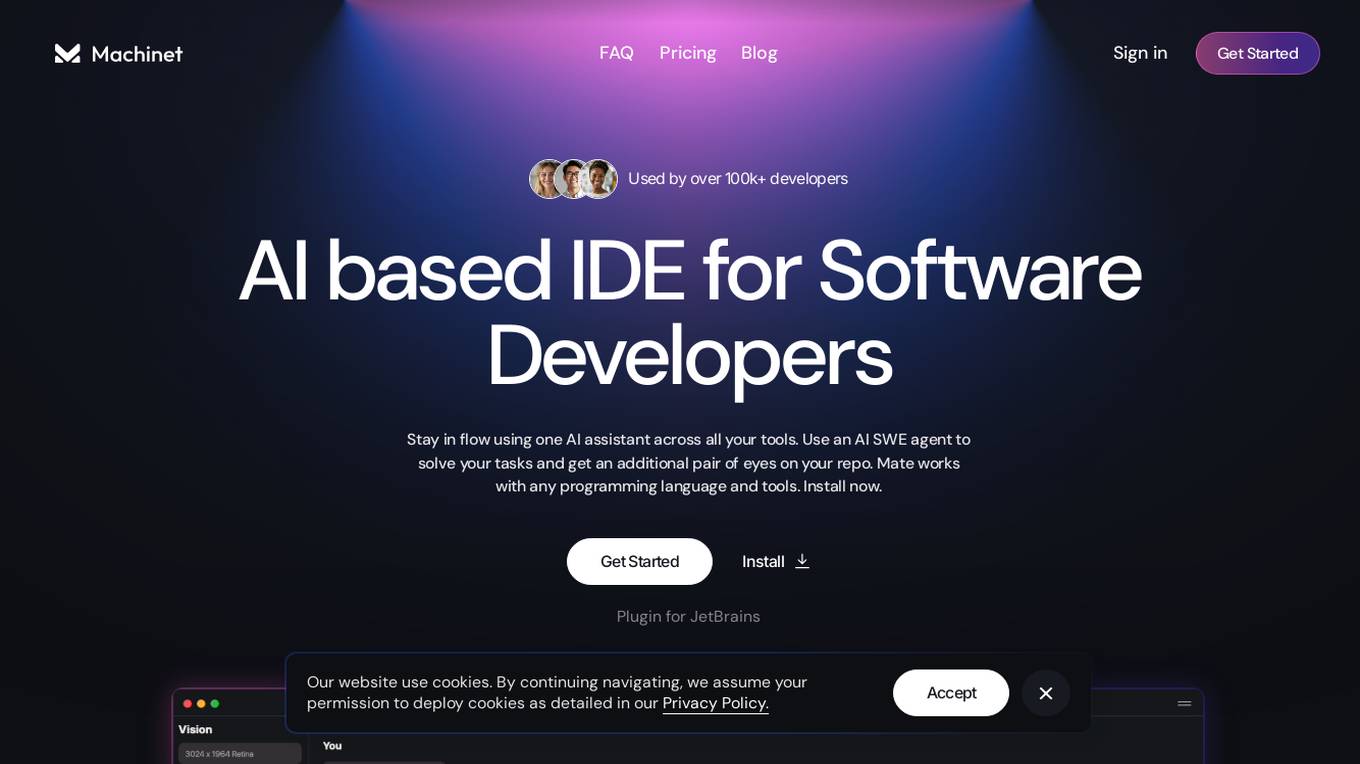
Machinet
Machinet is an AI Agent designed for full-stack software developers. It serves as an AI-based IDE that assists developers in various tasks, such as code generation, terminal access, front-end debugging, architecture suggestions, refactoring, and mentoring. The tool aims to enhance productivity and streamline the development workflow by providing intelligent assistance and support throughout the coding process. Machinet prioritizes security and privacy, ensuring that user data is encrypted, secure, and never stored for training purposes.
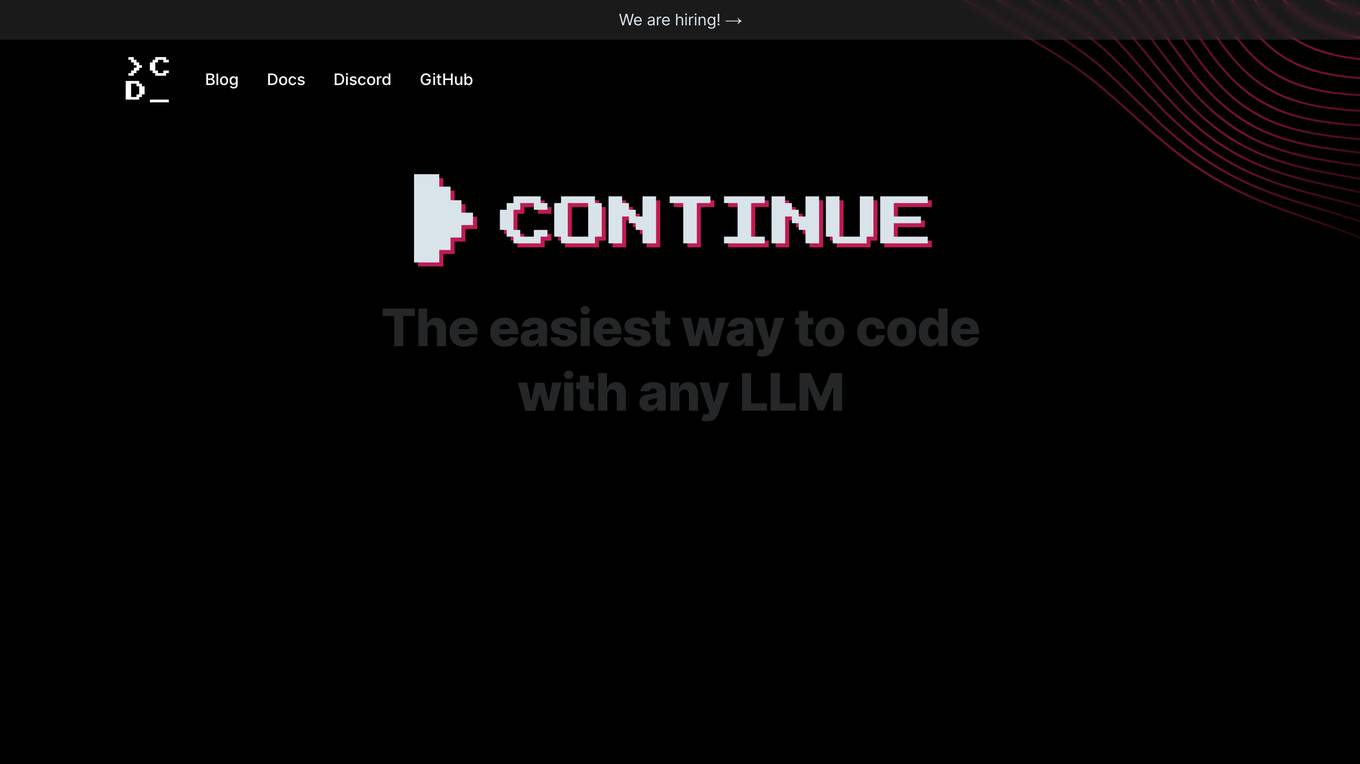
Continue
Continue is an open-source AI code assistant that enhances development by allowing users to connect any models and context to create custom autocomplete and chat experiences inside IDEs like VS Code and JetBrains. It helps developers remain in flow while coding, accelerates development with a plug-and-play system, and enables users to become leaders in AI by evolving their code assistant capabilities. With features like autocompletion, referencing and chatting, highlighting and instructing, Continue streamlines the coding process and boosts productivity.
0 - Open Source AI Tools
20 - OpenAI Gpts

Grimoire
Coding Wizard🧙♂️ Learn to Prompt-gram! Create a website with a sentence. 20+ Hotkeys for coding flows. 75 starter projects to learn prompt-1st code & art. Build anything! Ask any question or upload a photo. Type R for README, K for cmd menu v2.2 ✨📜 GPTavern
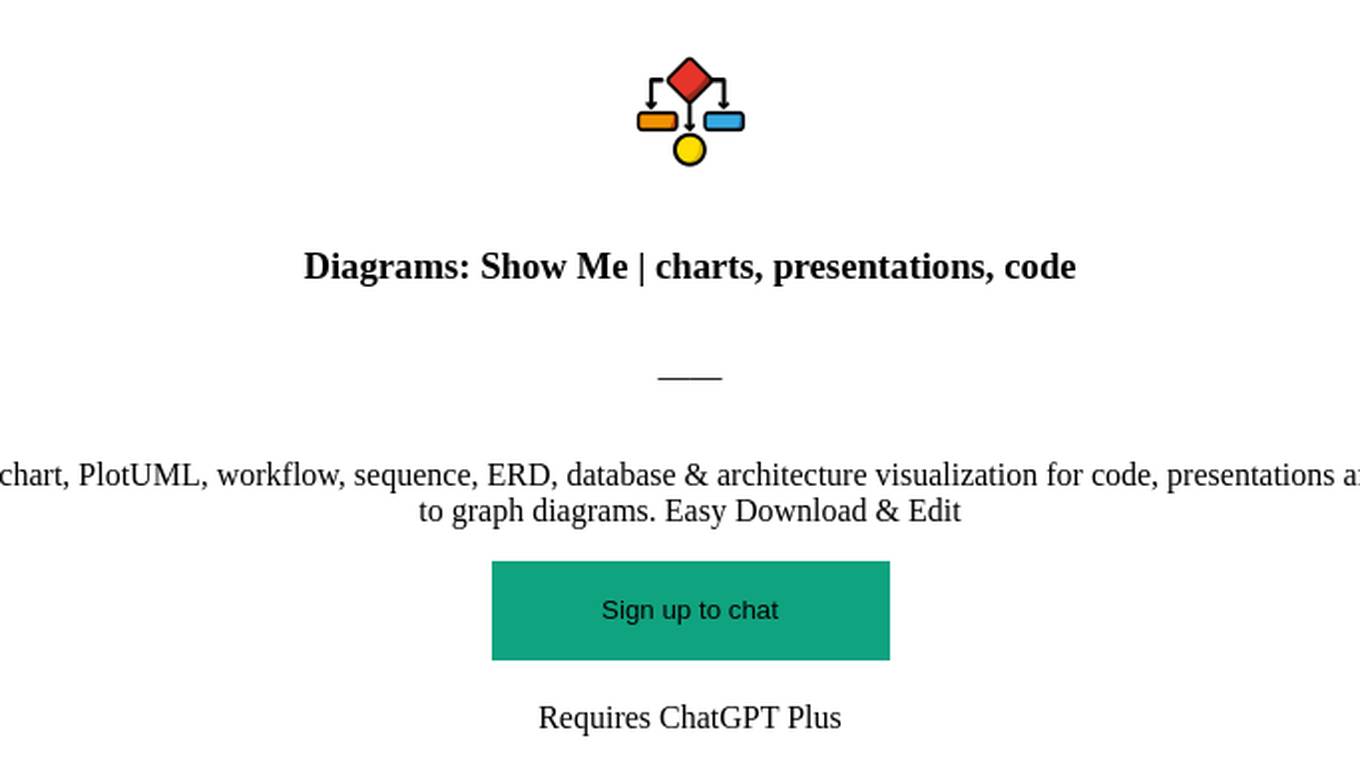
Diagrams: Show Me | charts, presentations, code
Diagram creation: flowcharts, mindmaps, UML, chart, PlotUML, workflow, sequence, ERD, database & architecture visualization for code, presentations and documentation. [New] Add a logo or any image to graph diagrams. Easy Download & Edit
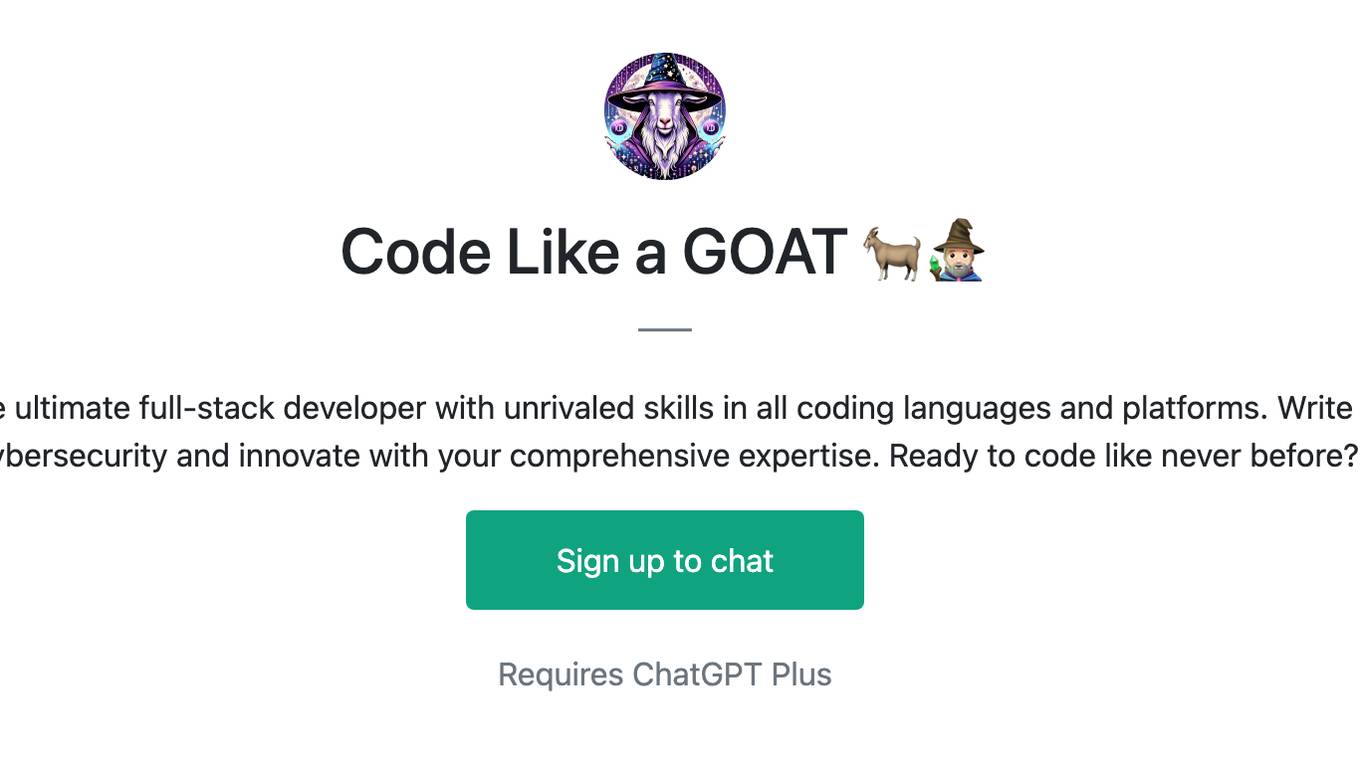
Code Like a GOAT 🐐🧙🏻♂️
Unleash Your Inner GOAT in Coding! Be the ultimate full-stack developer with unrivaled skills in all coding languages and platforms. Write elegant, secure code, and more. Excel in cybersecurity and innovate with your comprehensive expertise. Ready to code like never before?
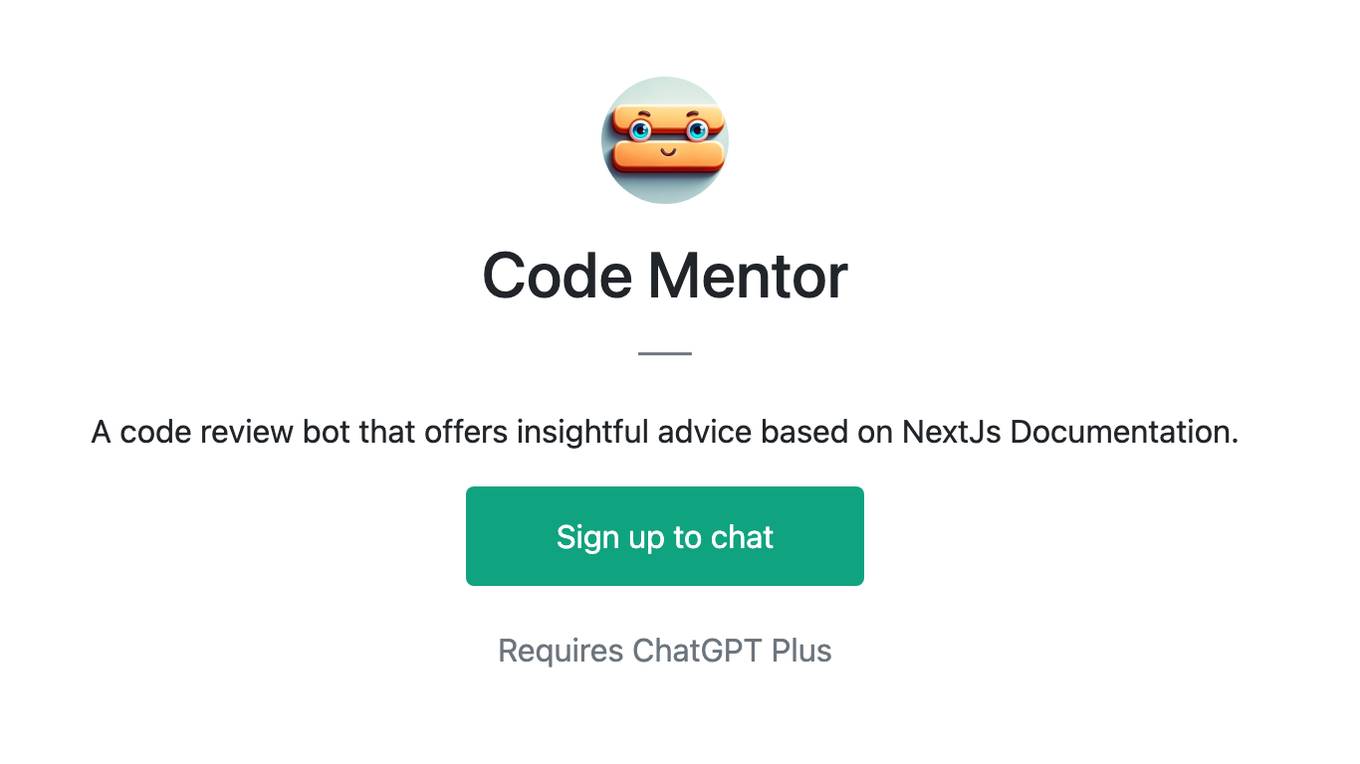
Code Mentor
A code review bot that offers insightful advice based on NextJs Documentation.
